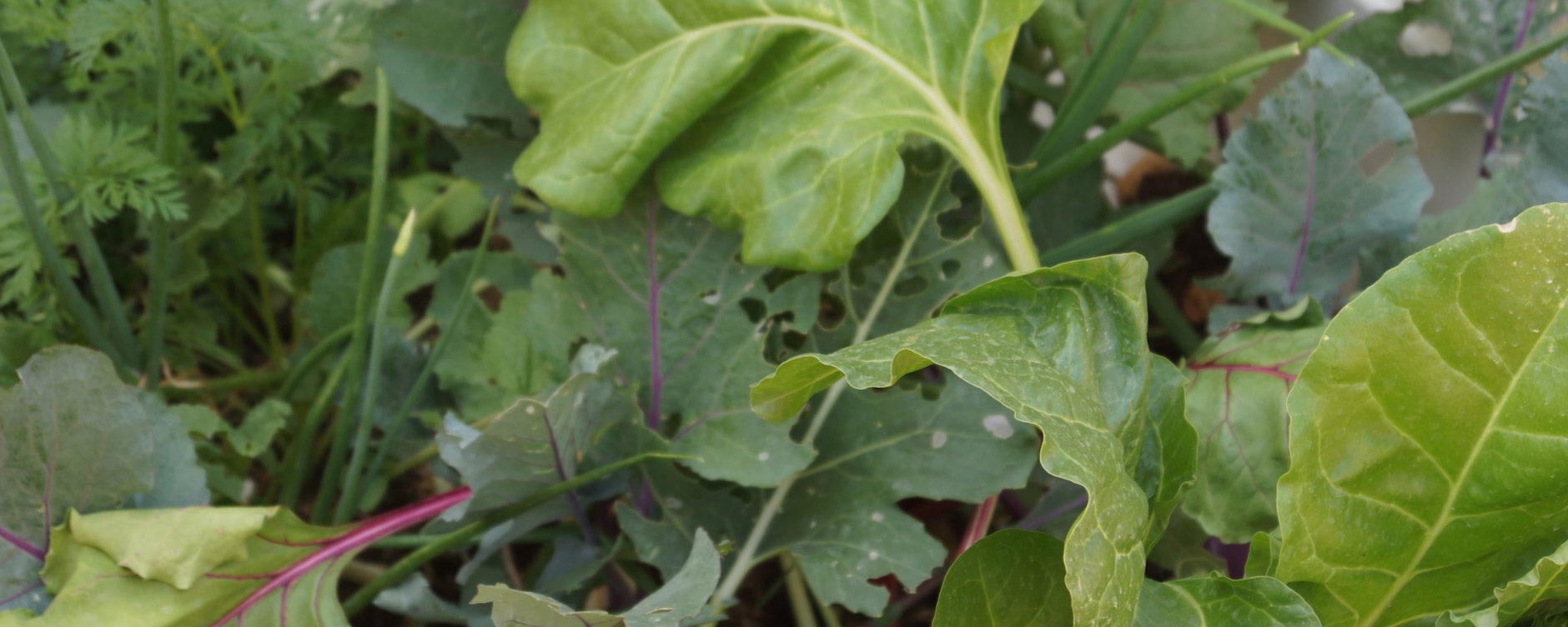
Sustainable Urbanism – New Directions: contents of this issue
The Sustainable Urbanism – New Directions Workshop was funded by Qatar National Research Fund and supported by Qatar University. Please read on for the contents of this publication.
 3
3
A call to action to foster a more holistic, integrated approach to urban design! In collaboration with Qatar University, Urbanista.org presents the illustrated proceedings of the Sustainable Urbanism - New Directions Workshop curated and organised by Dr. Anna Grichting, Qatar University, and funded by the Qatar National Research Fund. Publication editor: Dr. Lucy Bullivant, Urbanista.org. Image: Qatar University Edible Campus Green Roofs. Students ARCT421, Qatar University. © Qatar University.

The Sustainable Urbanism – New Directions Workshop was funded by Qatar National Research Fund and supported by Qatar University. Please read on for the contents of this publication.
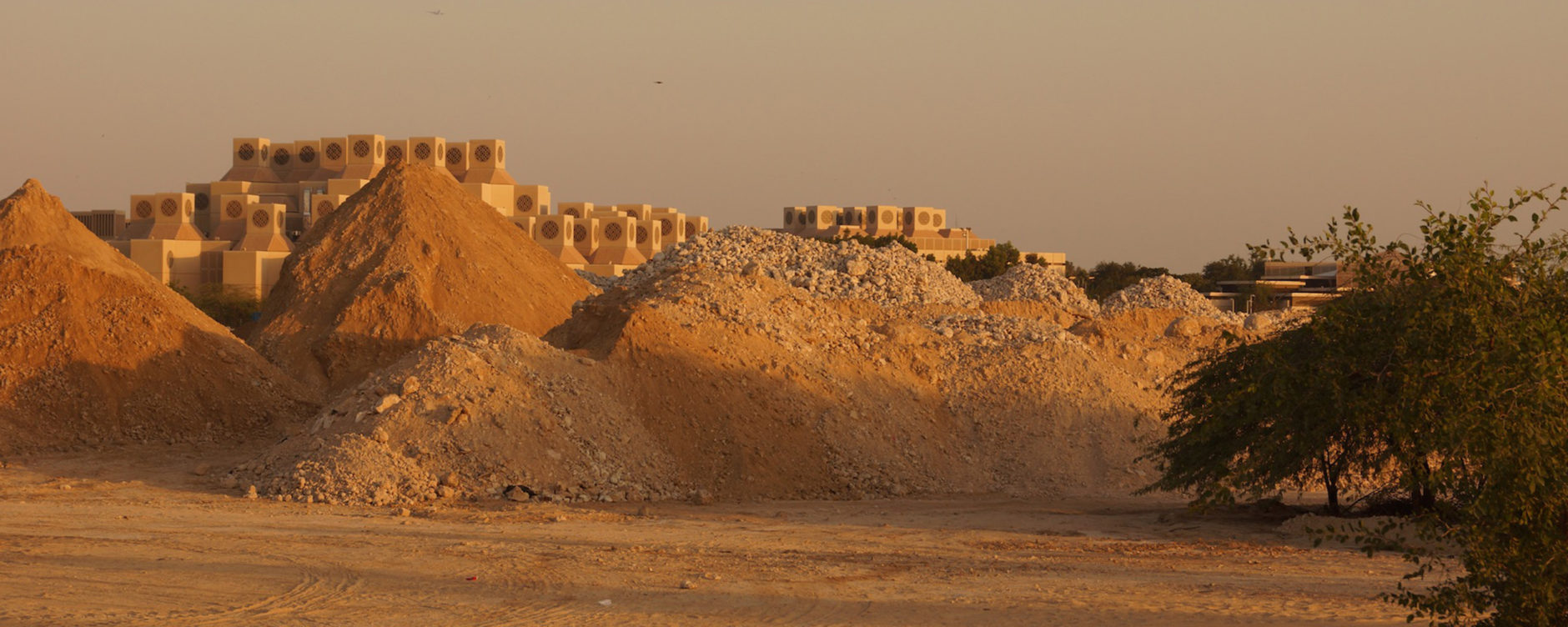
The Sustainable Urbanism – New Directions Workshop focusses on three topics: 1. new paradigms, 2. sustainable urbanism’s relationship with the social sciences and 3. urban systems, data and technologies.
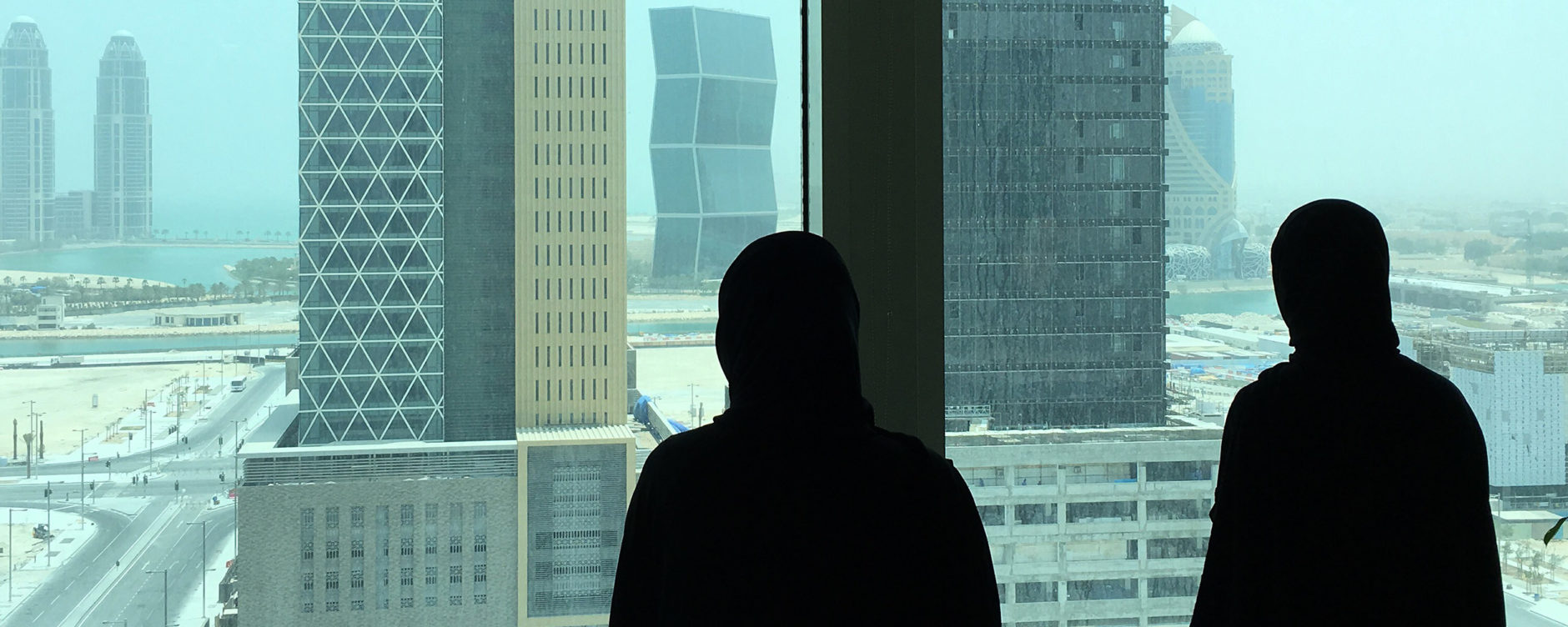
The international workshop programme Sustainable Urbanism: New Directions curated and staged by Qatar University in March 2016 brought together leading experts and researchers from around the world to discuss new directions in sustainable urbanism from the perspectives of the social sciences, but also with an emphasis on its interdisciplinary nature.
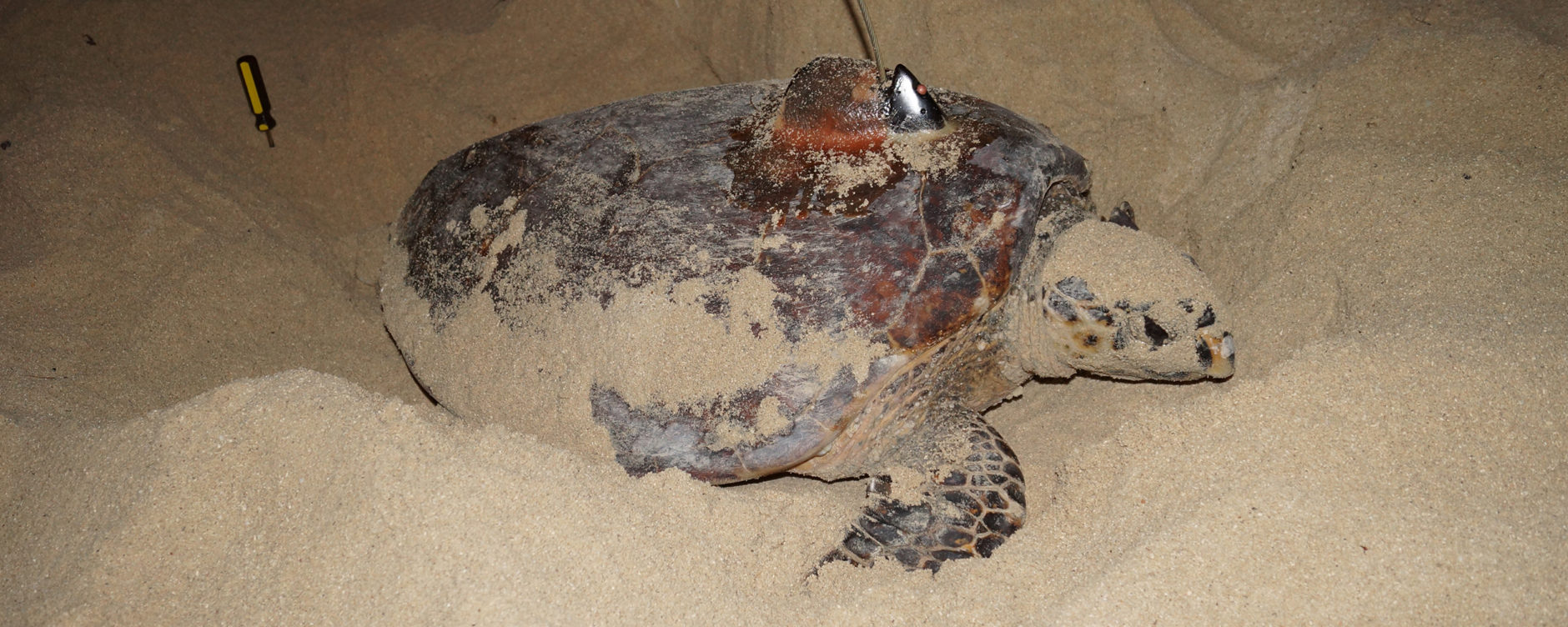
The aim of the Sustainable Urbanism – New Directions Workshop, Dr. Anna Grichting, Qatar University, curator of the international event, explains, was to discuss new directions in sustainable urbanism with a particular focus on the social sciences. Architecture and urbanism are between disciplines, across disciplines: in a marginal space – the border – which contemporary philosophers such as Gilles Deleuze and Rosi Braidotti describe as the space where the most creative and innovative things happen.
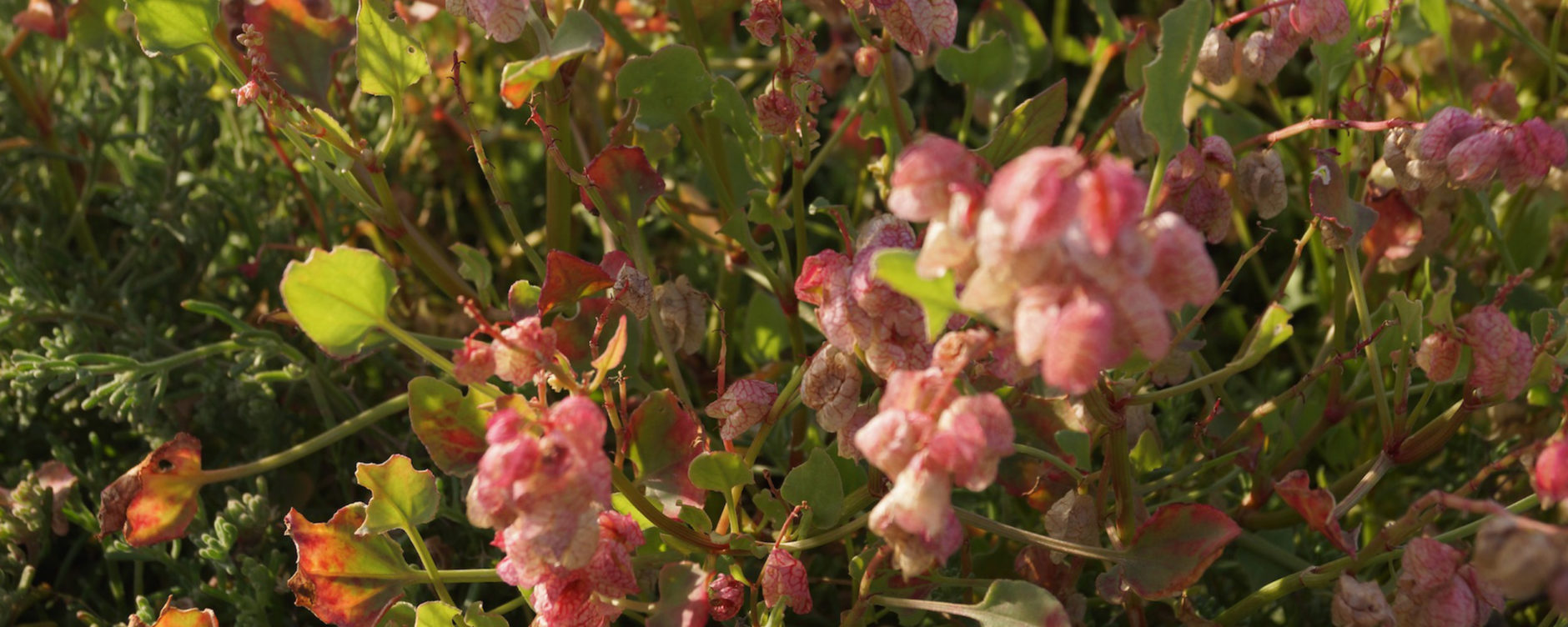
The Sustainable Urbanism New Directions International Workshop was held on 19, 21, 22 and 24 March 2016 with a rich programme of speakers and activities featured in this issue.
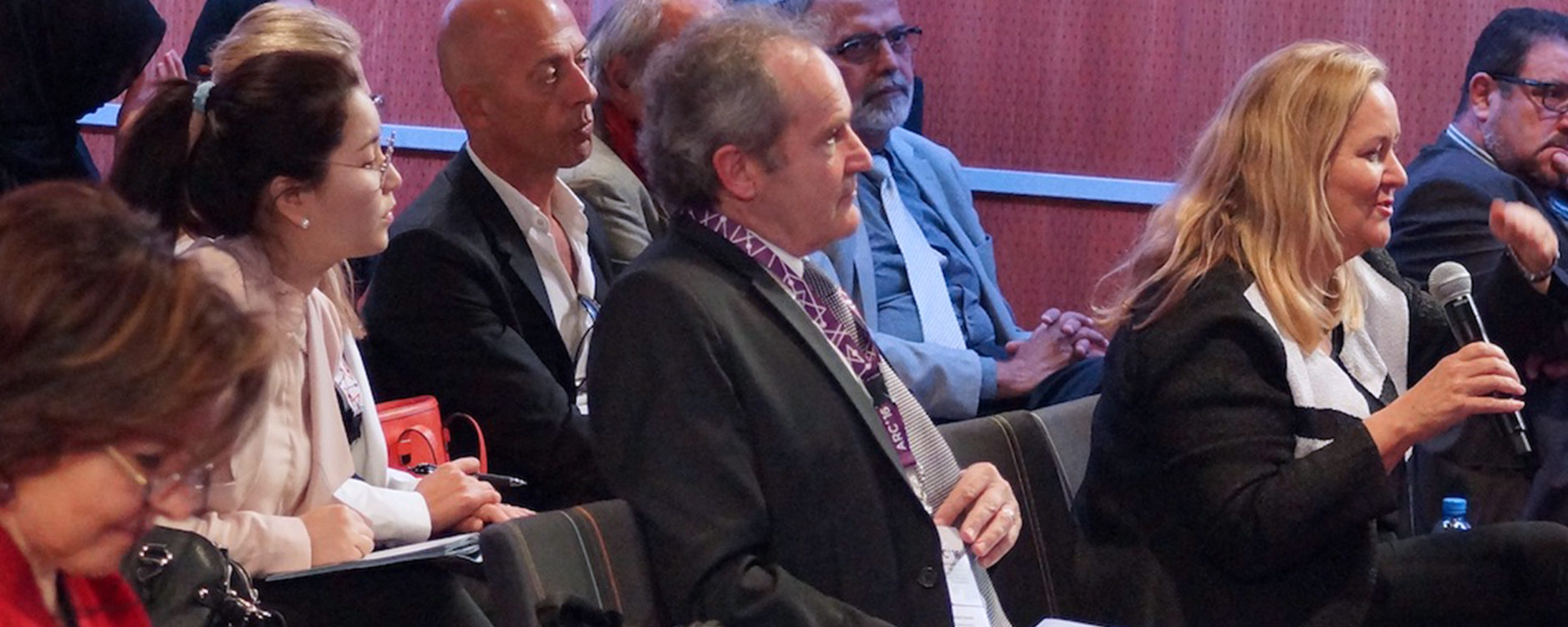
The first session discussed new approaches to physical planning of the built environment, in particular those integrating landscape, ecology and urban planning, as well as urban design treating the city as a system.
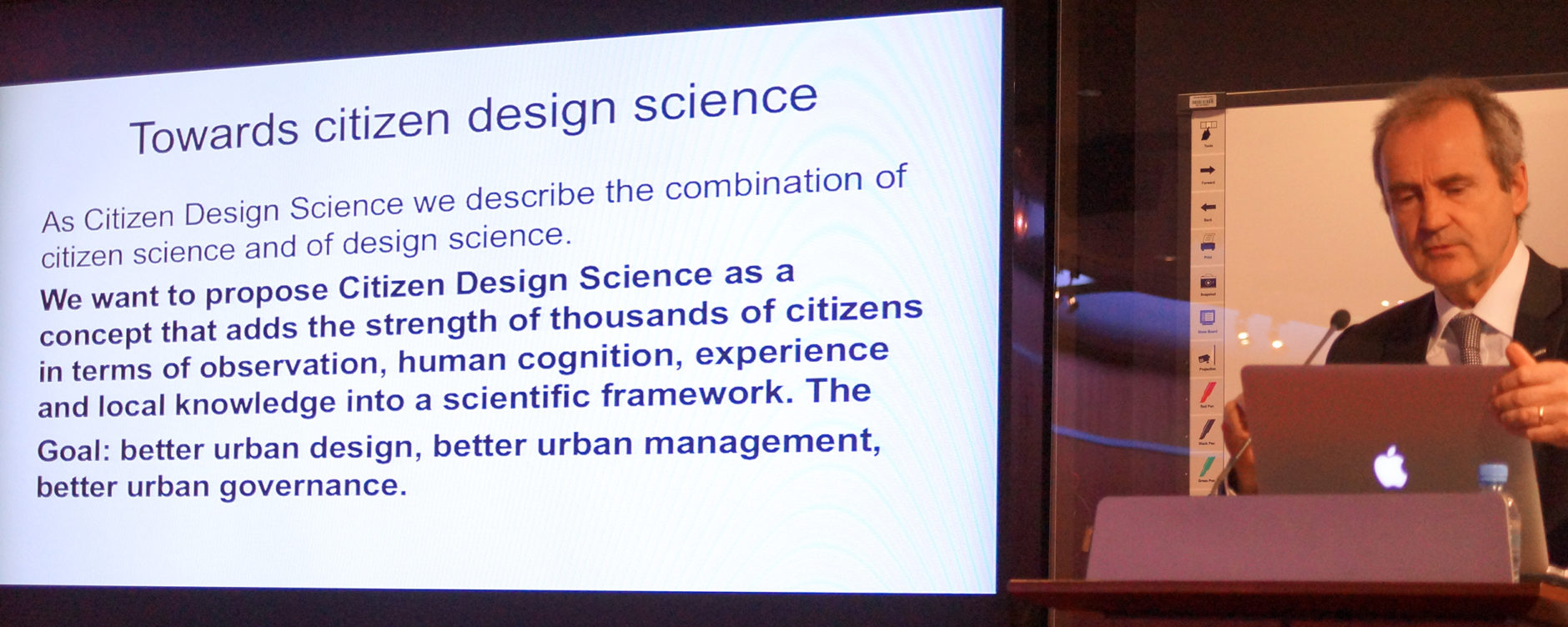
Social sciences must take on a leading role in the transformation from top-down to citizen-designed urban change, management and governance, argues Gerhard Schmitt, Professor of Information Architecture at the Swiss Federal Institute of Technology in Zurich (ETH), founding Director of the Singapore-ETH Centre in Singapore, and ETH Zurich Senior Vice President for ETH Global.
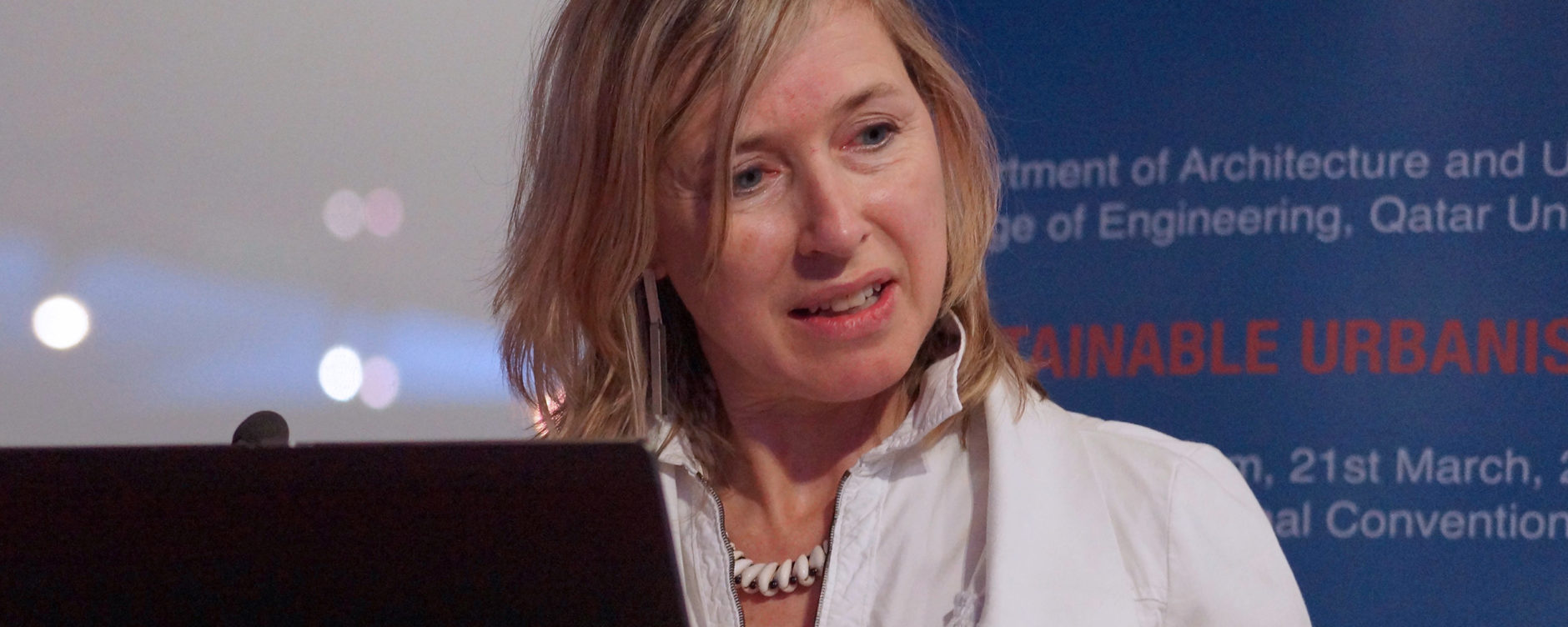
Landscape architect Johanna Gibbons, co-founder of J & L Gibbons in London, describes her practice and research as collaborative. This gives the team multiple perspectives from which to appreciate natural process, to interact with community dynamics, and to develop design and conservation management responses.
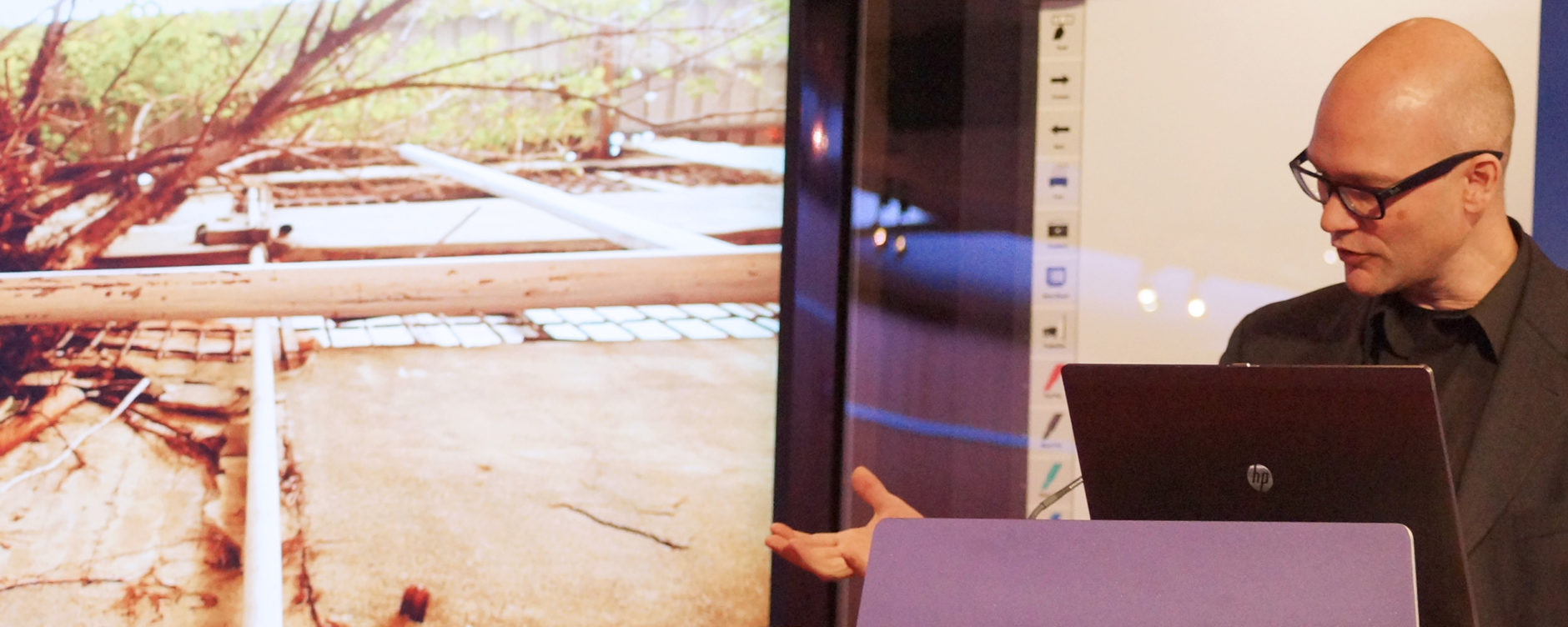
Urban Acupuncture is a biourban theory that combines sociology and urban design with the traditional Chinese medical theory of acupuncture, explains Marco Casagrande, a Finnish architect, biourbanist and social theorist. As a design methodology, it is focused on tactical, small-scale interventions in the urban fabric, and ripple effects and the transformation of the larger urban organism.
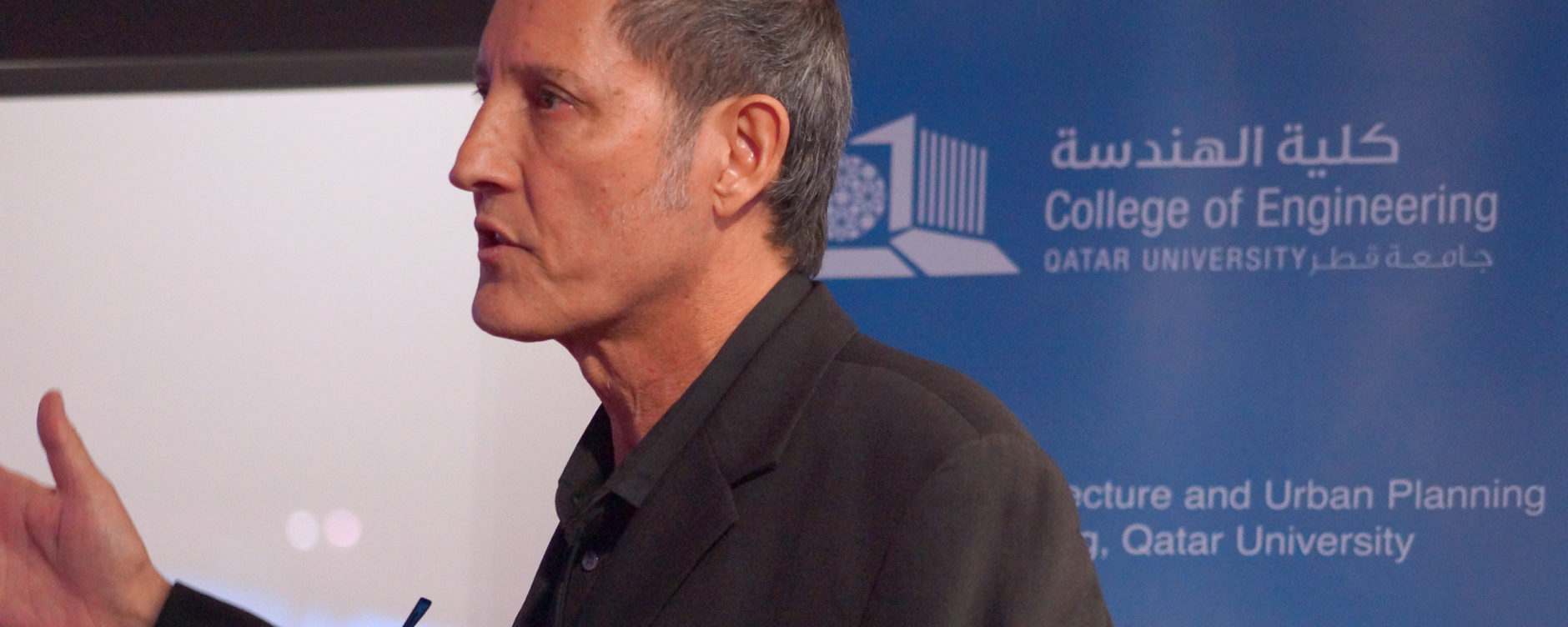
What is known and of value in sustainable urbanism is derived both from academic texts and real-world projects, encompassing the newest areas of research. What is yet to be investigated to full advantage in application, argues Dr. Rafael Pizarro, is state-of-the-art knowledge of sustainable urbanism including advances in sustainable urban forms, green transportation, land use, urban design, open space design, density and pedestrianism.
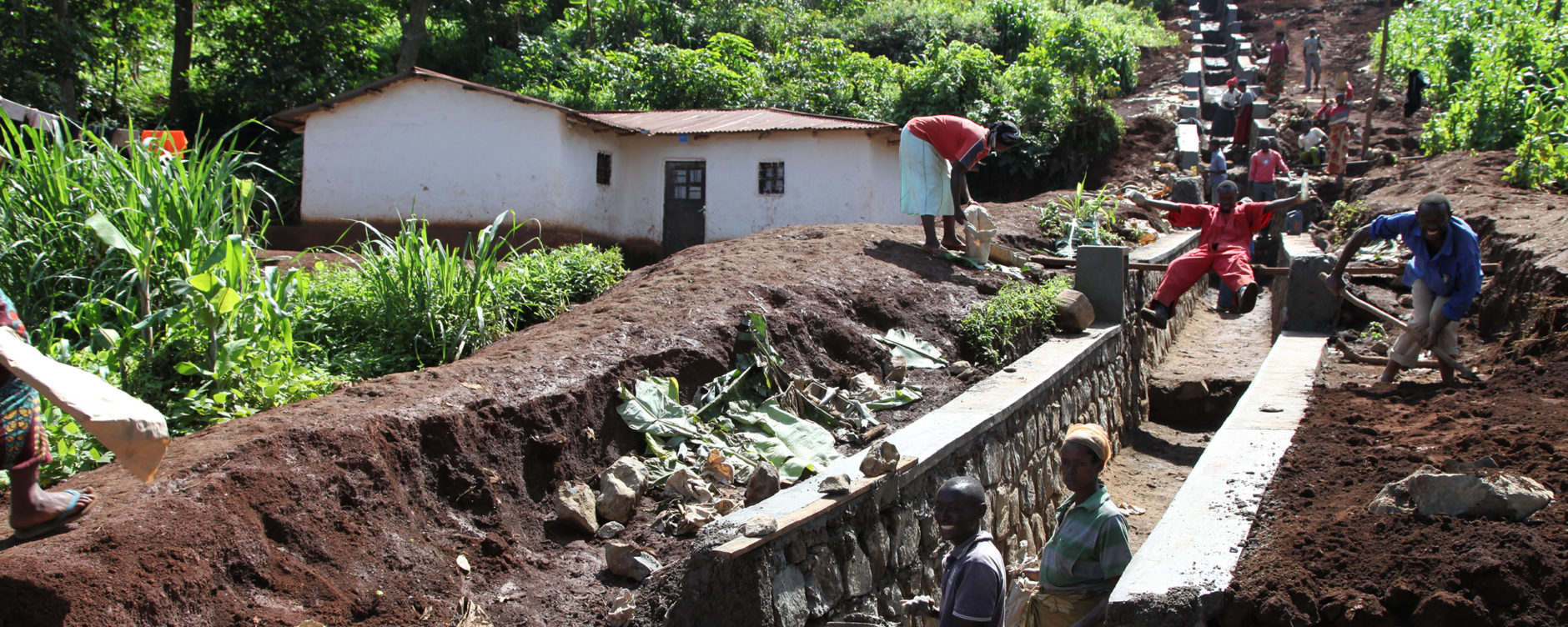
Session II, Sustainable Urbanism and the Social Sciences, focussed on people and communities in the city, and their role in the sustainability of a healthy, safe and liveable city.
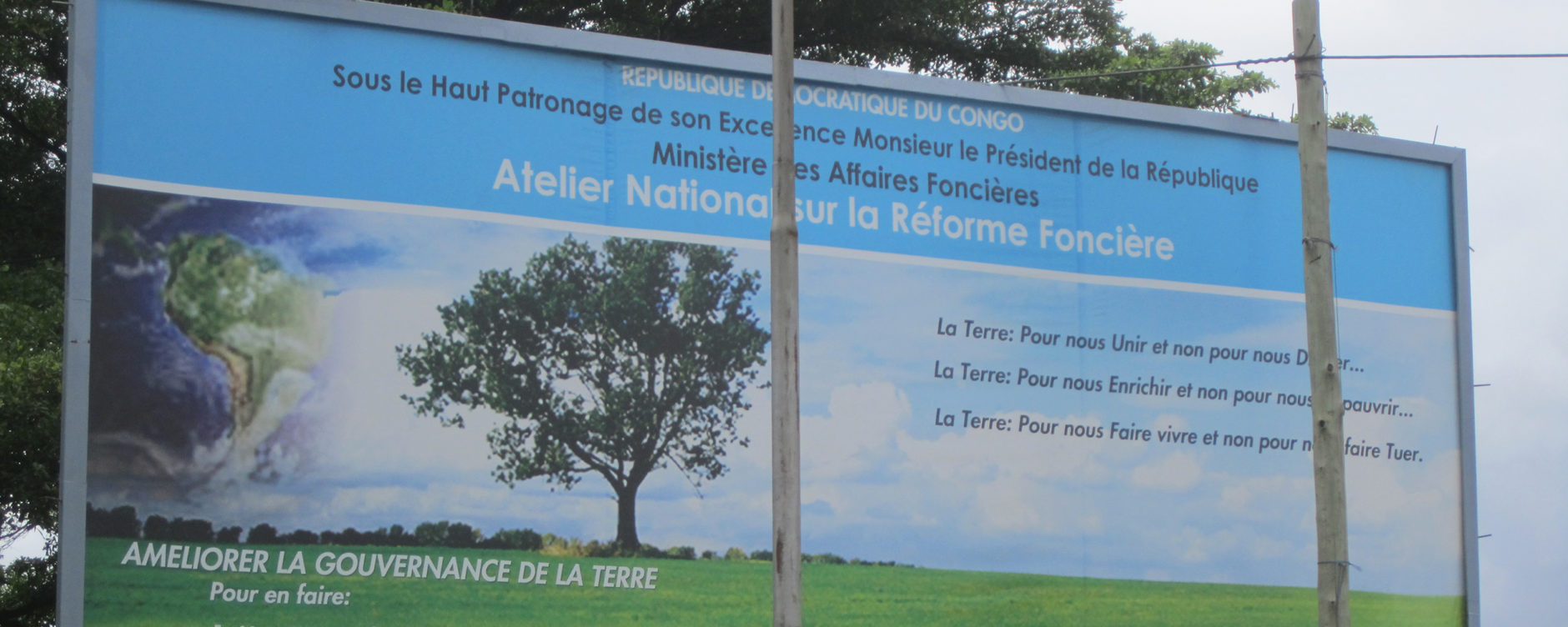
For the first time in the history of development, as UN-Habitat’s Director General, Joan Clos and Eduardo López Moreno, Director of Research and Capacity Development, point out, urbanization is considered a developmental tool and a driver for economic and social prosperity. By getting urban development right, cities can create jobs, improve social inclusion and protect local ecosystems.
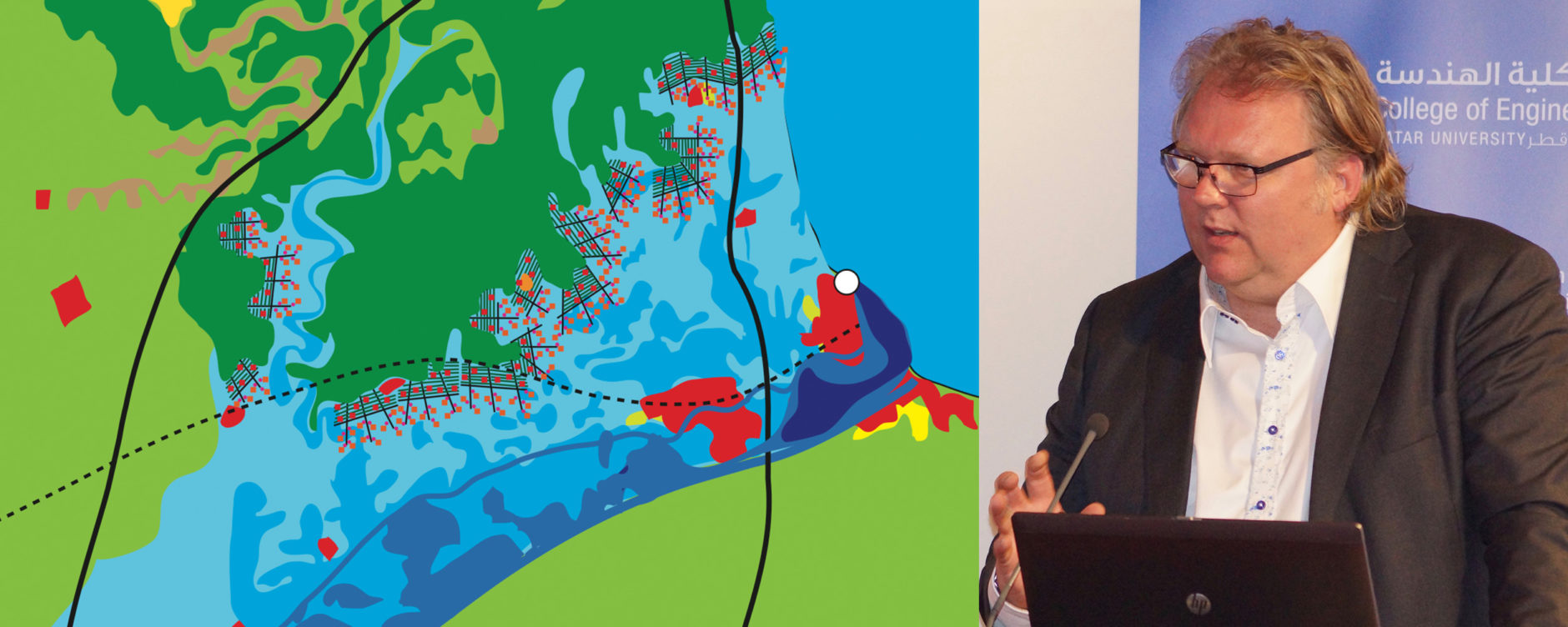
An alternative approach to urbanism: Swarm Planning, enables the city to anticipate change through responding in advance to different time horizons of change and to take the biggest uncertainty as the starting point for design, argues Dr. Rob Roggema, landscape architect and a design expert on climate adaptation, renewable energy planning and urban agriculture.
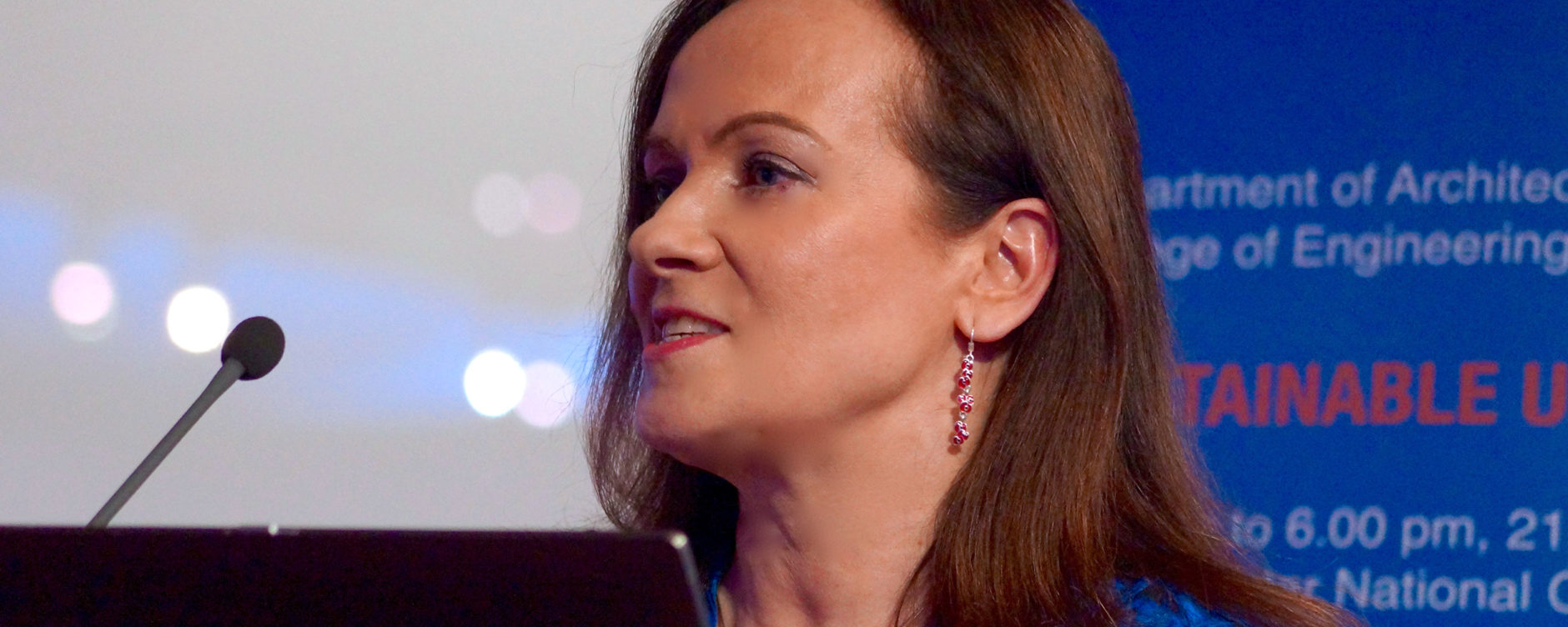
New commons created by and for citizens through participatory placemaking practices help to counter a discriminatory market, maintains place vision strategist, curator, author and founder of Urbanista.org Dr. Lucy Bullivant, and affirm an alternative model of society based on greater self-reliance – and self-determination.
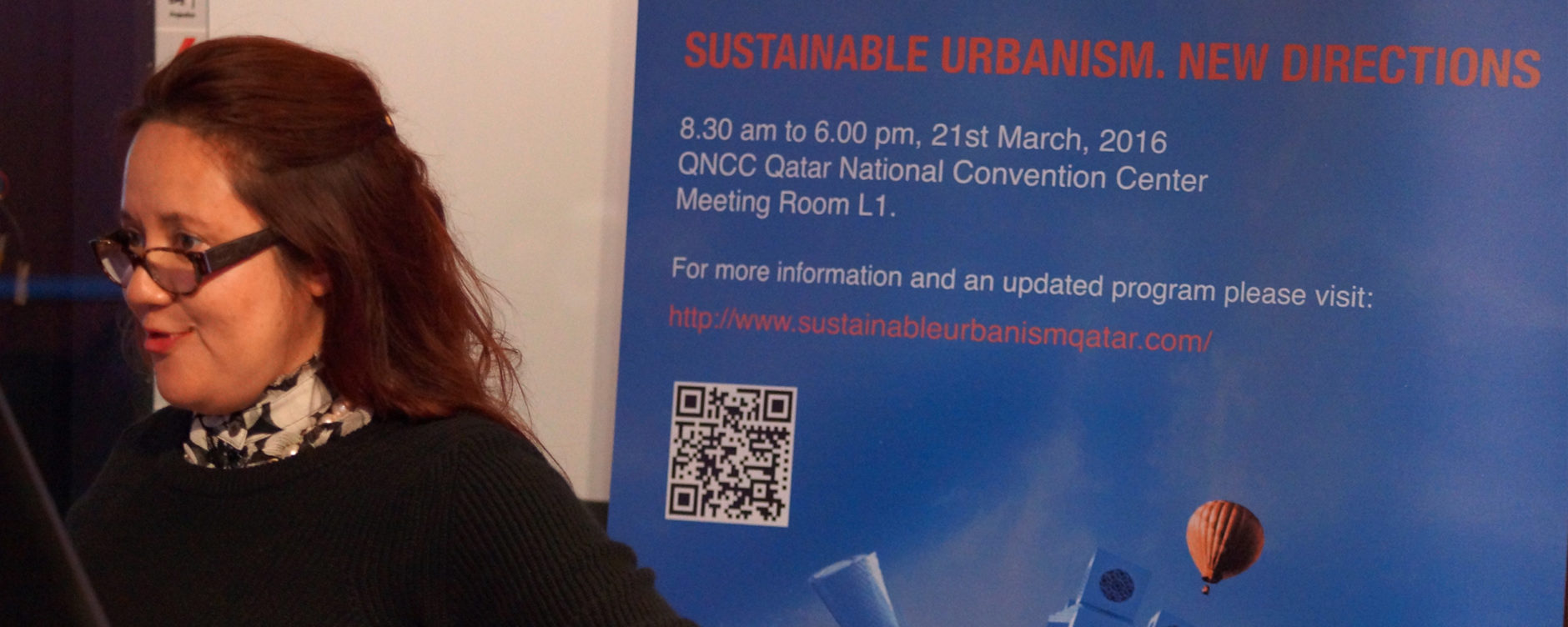
PPP – Public-Private Partnerships – and its key elements and benefits are introduced by Sharifah Hamzah, a Senior Associate with Bennett Jones (Gulf) LLP, who believes that the general public that should benefit from Public-Private Partnership infrastructure investments.
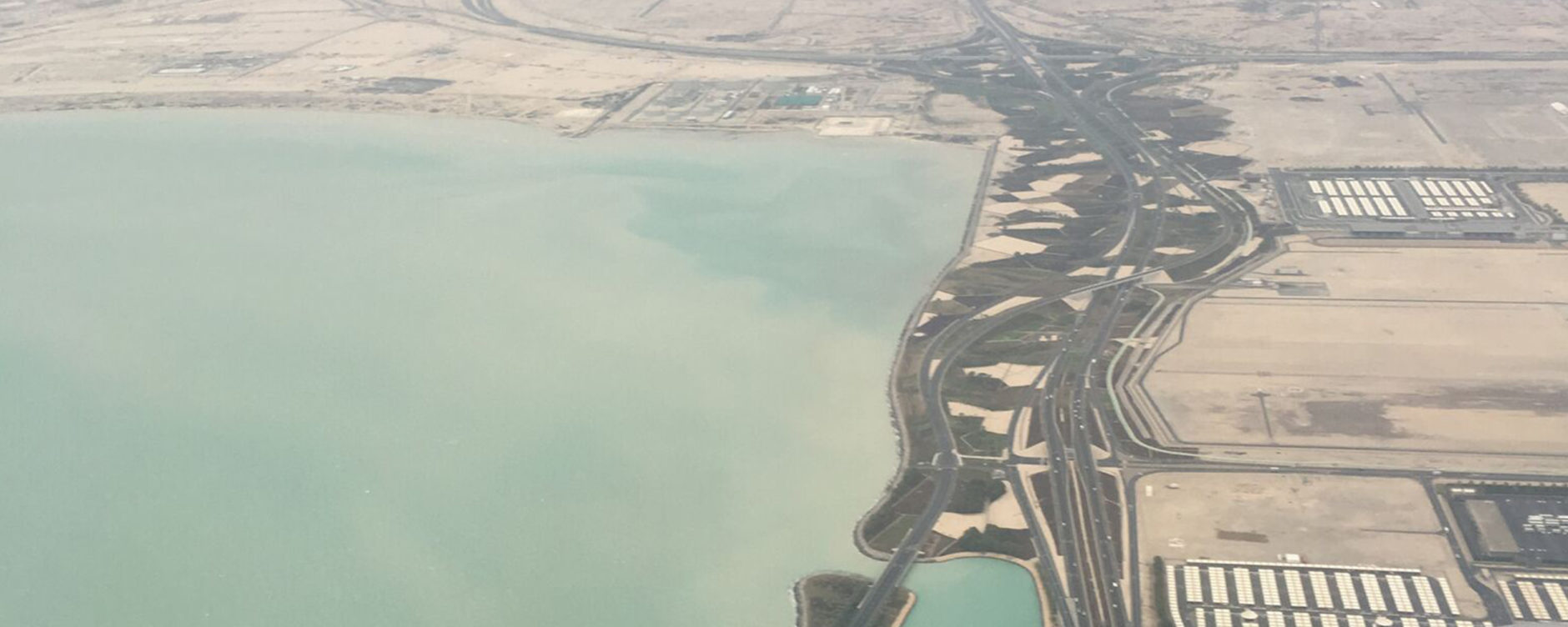
The third Workshop session, Sustainable Urbanism: Urban Systems and New Technologies, discusses the concept of technology and the sustainable city.
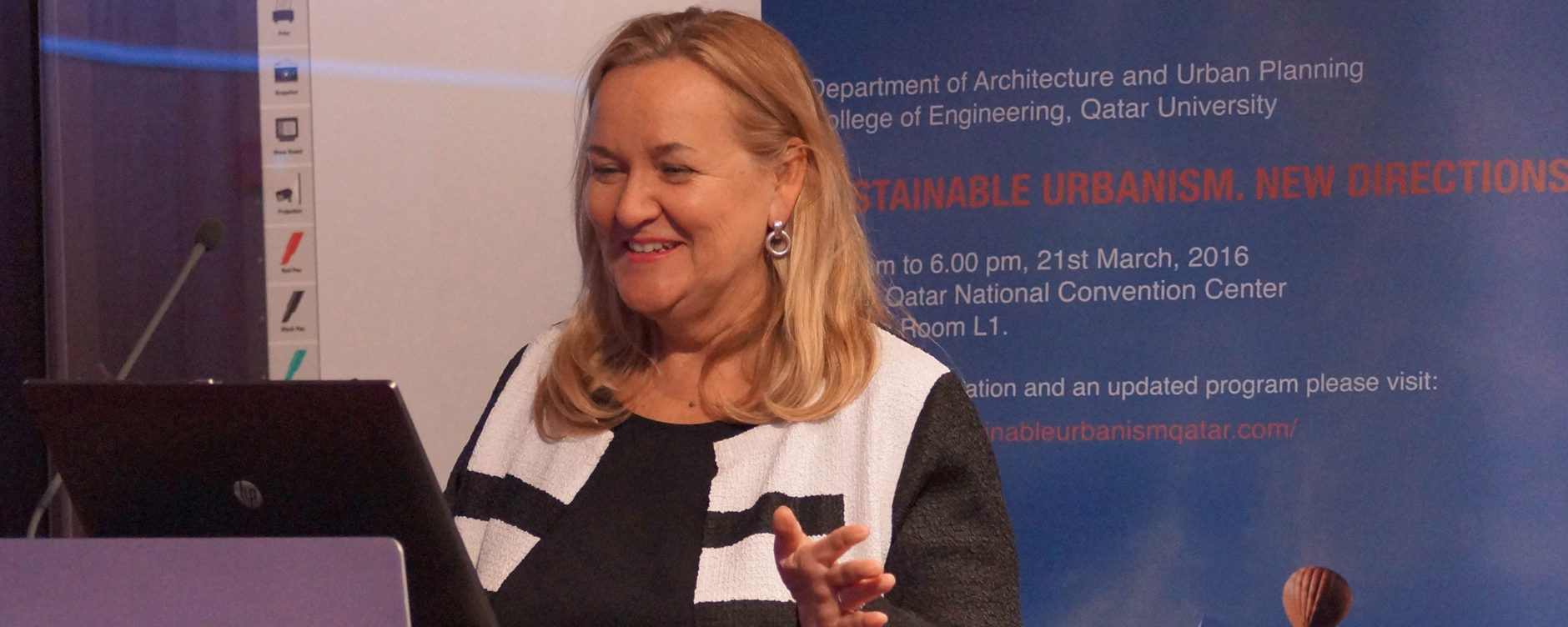
Sustainable city building must be supported by interdisciplinary research informed by high-calibre city data, maintains Dr. Patricia McCarney, President and CEO of the World Council on City Data (WCCD). Working within the social sciences, she and her colleagues have come to recognize that the key challenge facing urban research that can inform sustainable urbanism is the lack of high-quality, comparable data on city sustainability performance, operational planning, design and management, and quality of life.
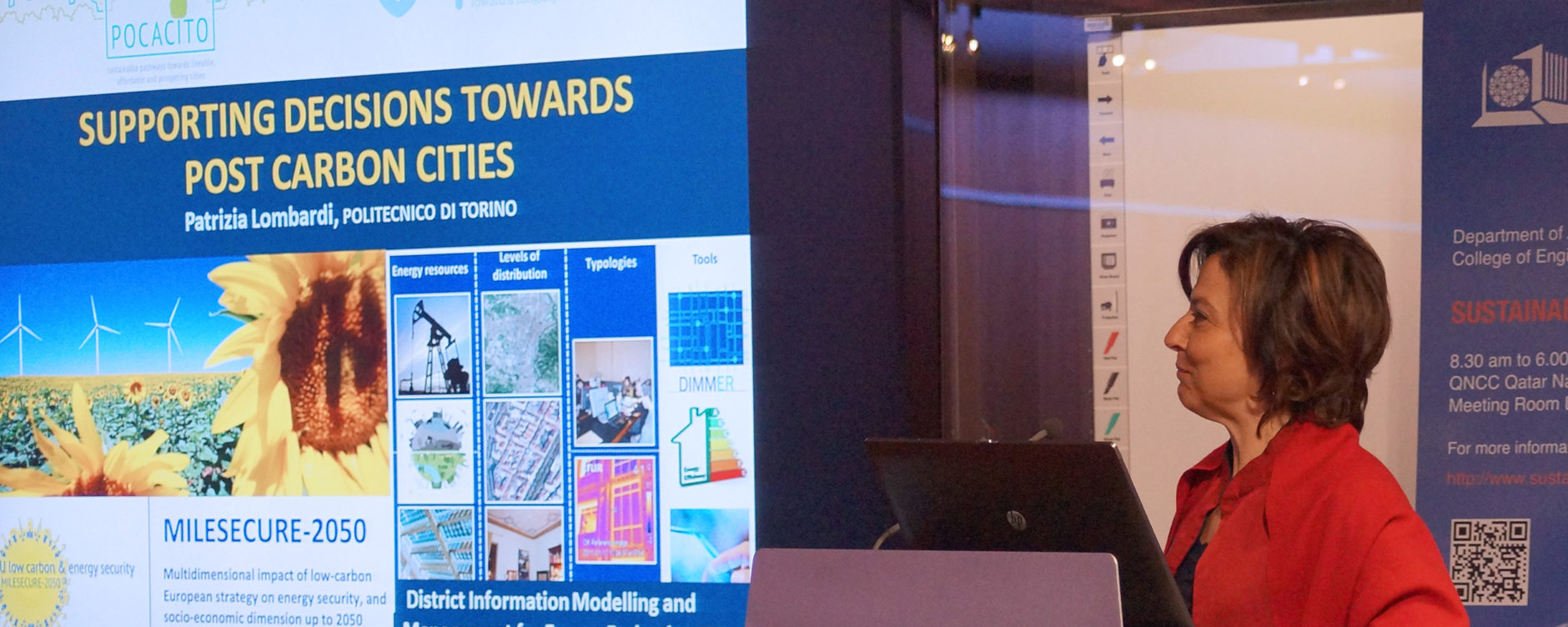
The need for a paradigm shift in order to progress towards sustainable development in cities is highlighted by Dr. Patrizia Lombardi. She focuses her analysis on the relations between cities and climate change, and the concept of the post-carbon city which has recently emerged as a concept emphasising the process of transformation, a shift in paradigm that is necessary to respond to the multiple challenges of climate change, ecosystem degradation, social inequity and economic pressures.
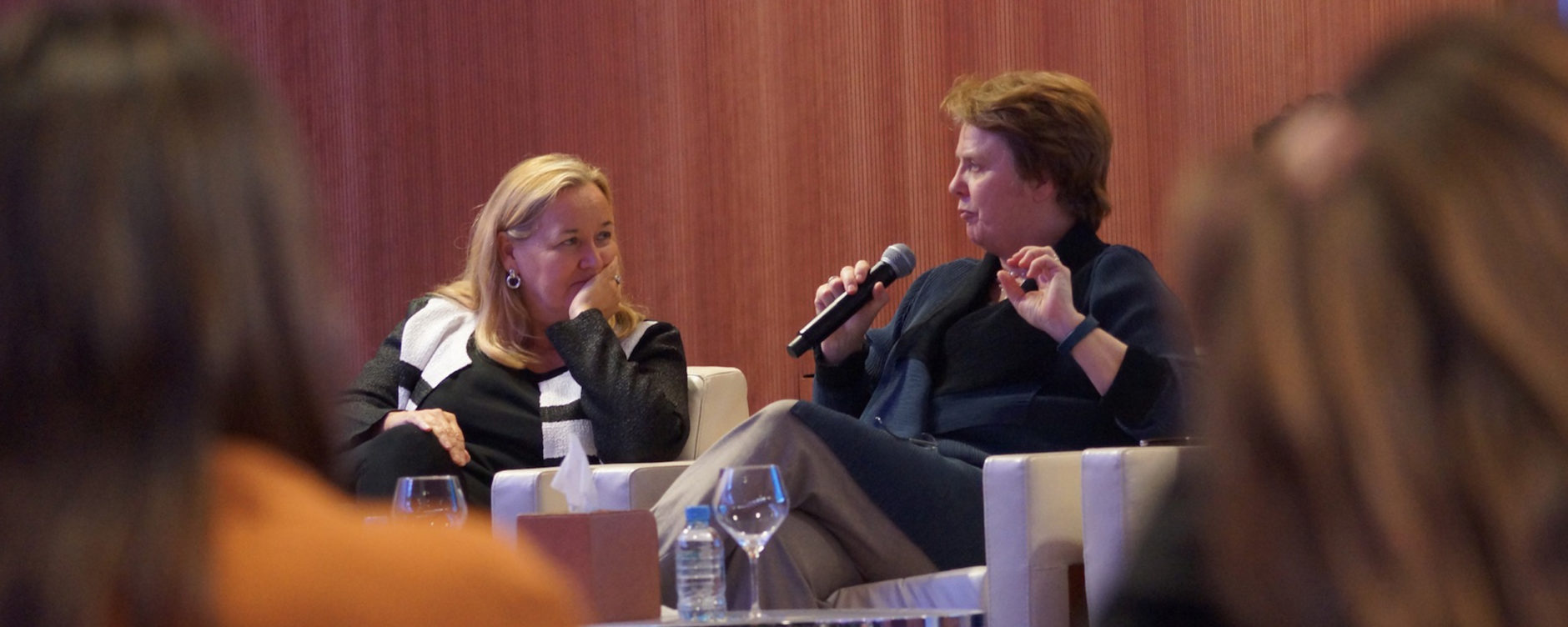
The time is right to build an urban data research network grounded in science, technology and training, maintains economist and economic statistician Dr. Julia Lane, Professor at CUSP (Center for Urban Science + Progress), NYU, and at NYU Wagner Graduate School of Public Service.
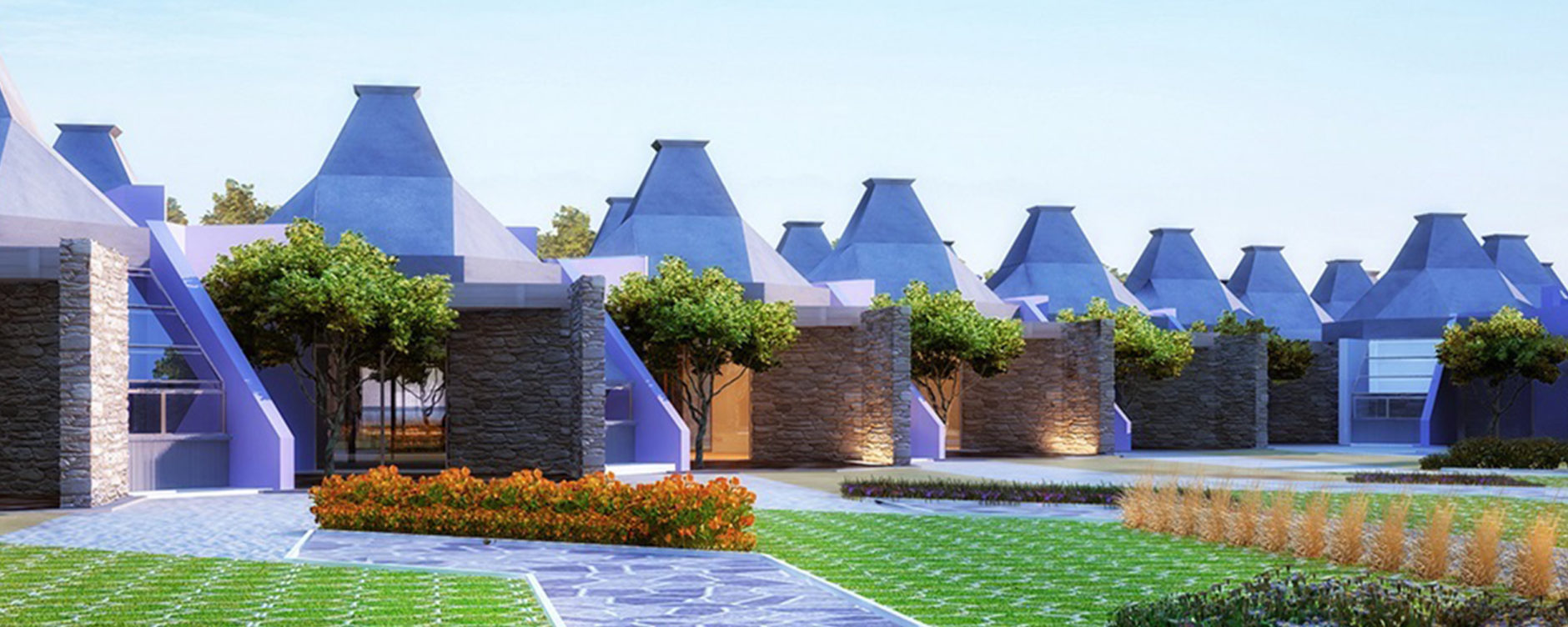
Dr. Ibrahim S. F. Karim is the Egyptian founder of BioGeometry, a modern energy science which he describes as a successful means for uniting science with spiritual insight.
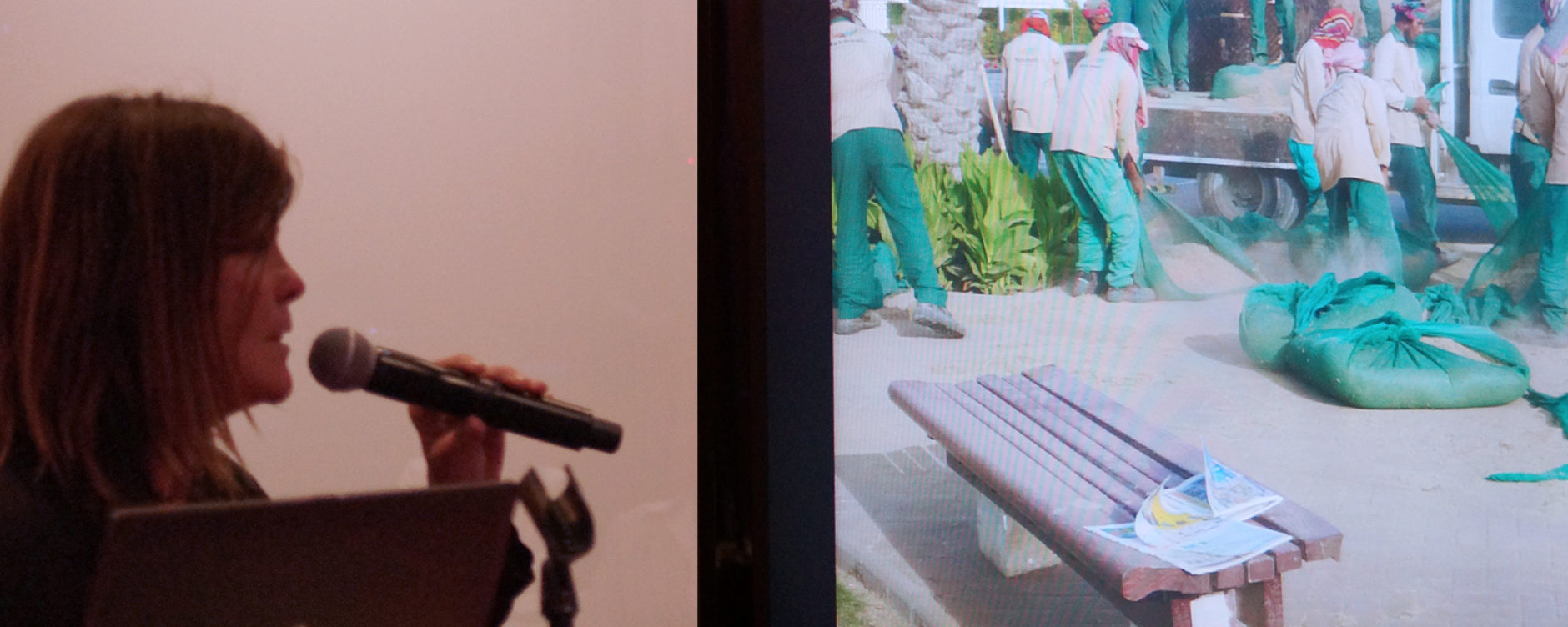
The Ground Rules is an action-research model created by ecologist Nance Klehm that understands soil as a tool for knowledge building, engaging the public, and shaping new policy.
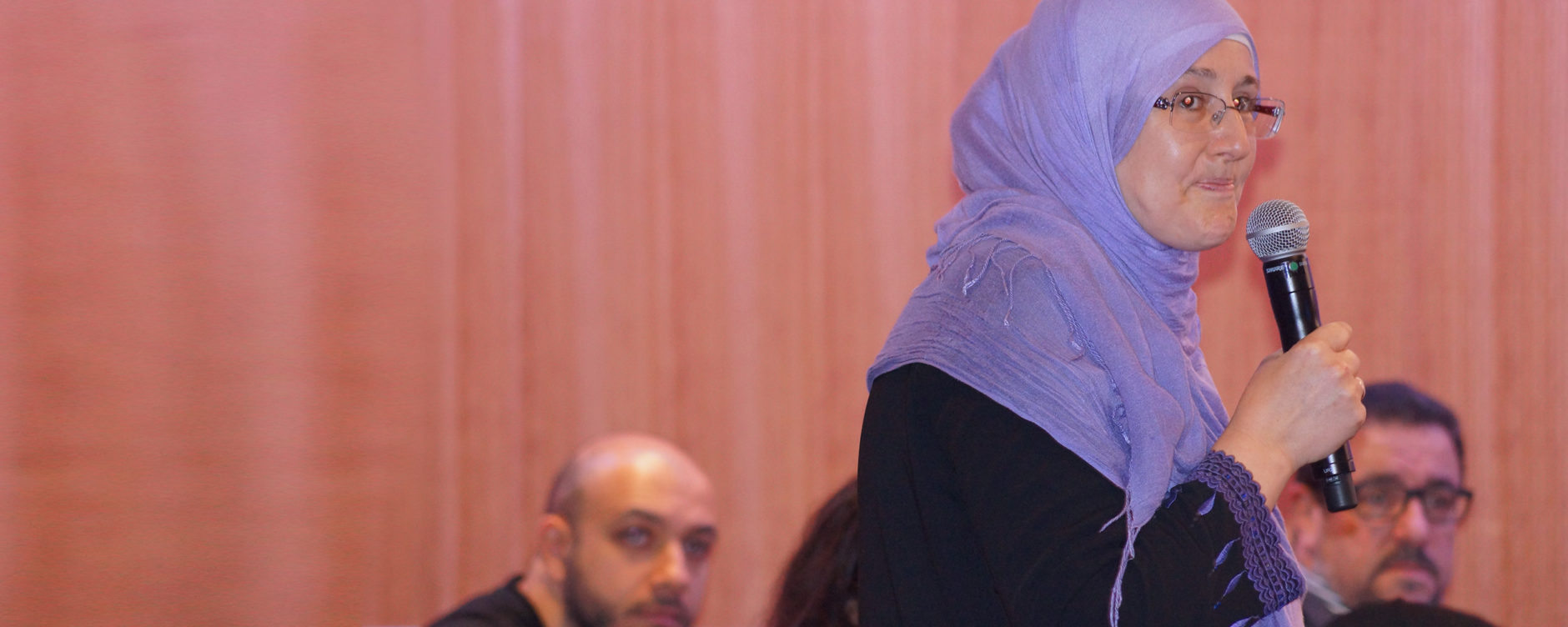
Feedback from delegates attending the Sustainable Urbanism New Directions Workshop offered insights and suggestions.
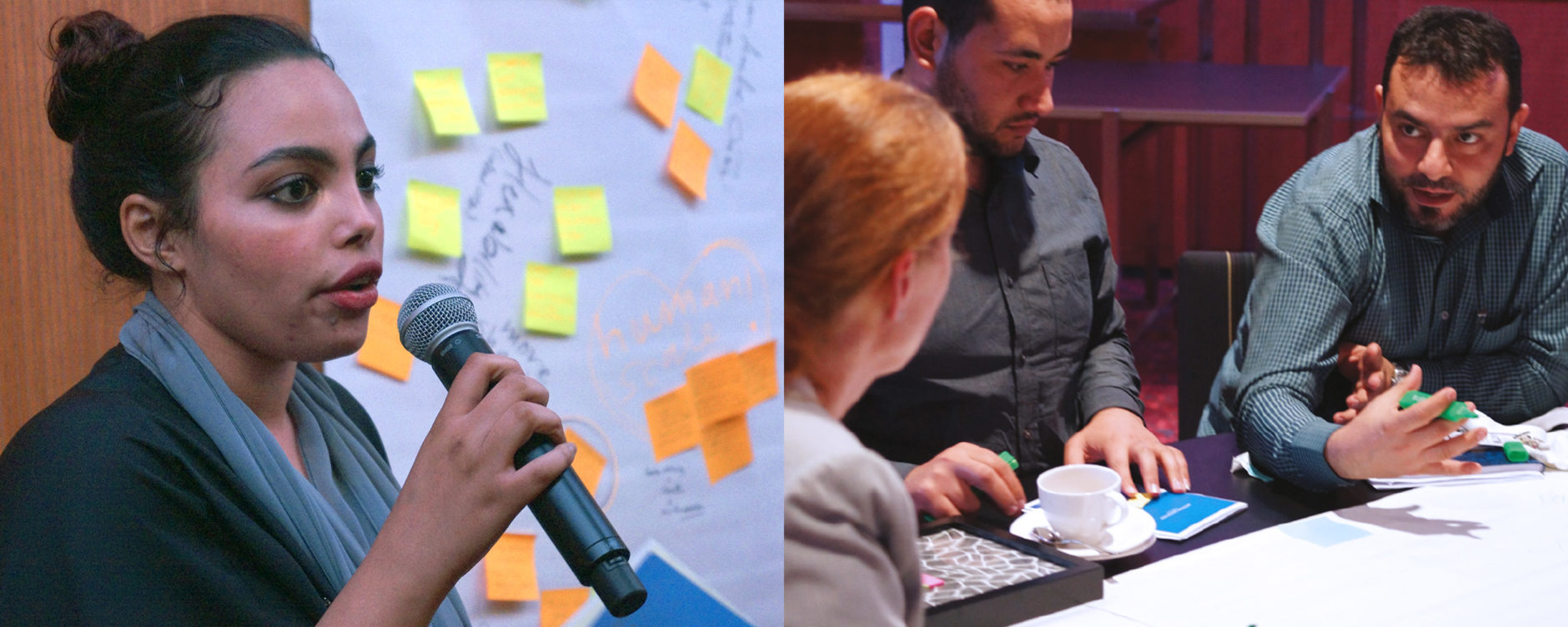
A one hour brainstorming session was staged with the Sustainable Urbanism New Directions’ speakers and guests from Qatar University and public and private bodies in Doha as part of the event to draw out a range of integrated propositions by participants for the research agenda for Doha, Qatar and the region.
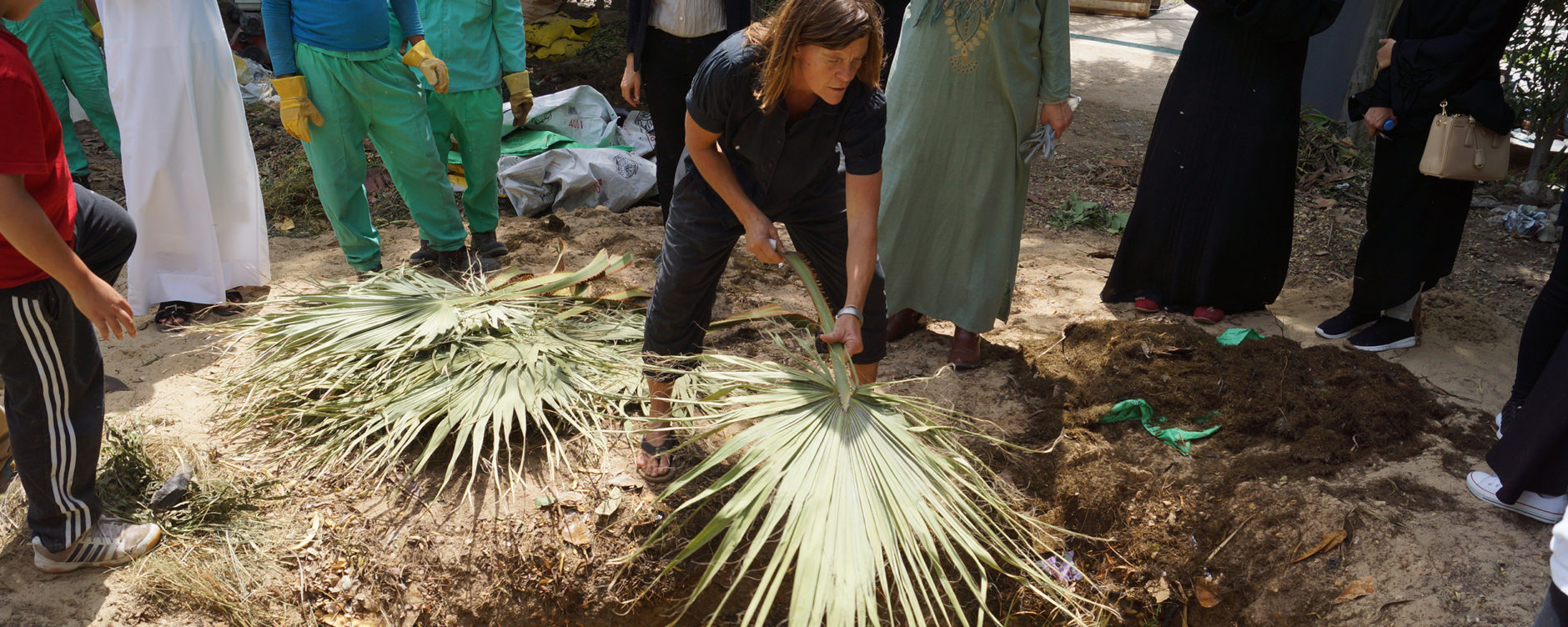
The Soul to Soil Permaculture Workshop: From Waste to Fertility: Building Soil Fertility with Compost, led by ecologist Nance Klehm and staged at the Qatar University Plant Nursery on 19 March 2016 was supported by SAIC (Al Sulaiteen Industrial Complex). Landscape engineers and gardeners from Qatar University took part alongside students, professional architects and landscape designers, local school children and their teachers.
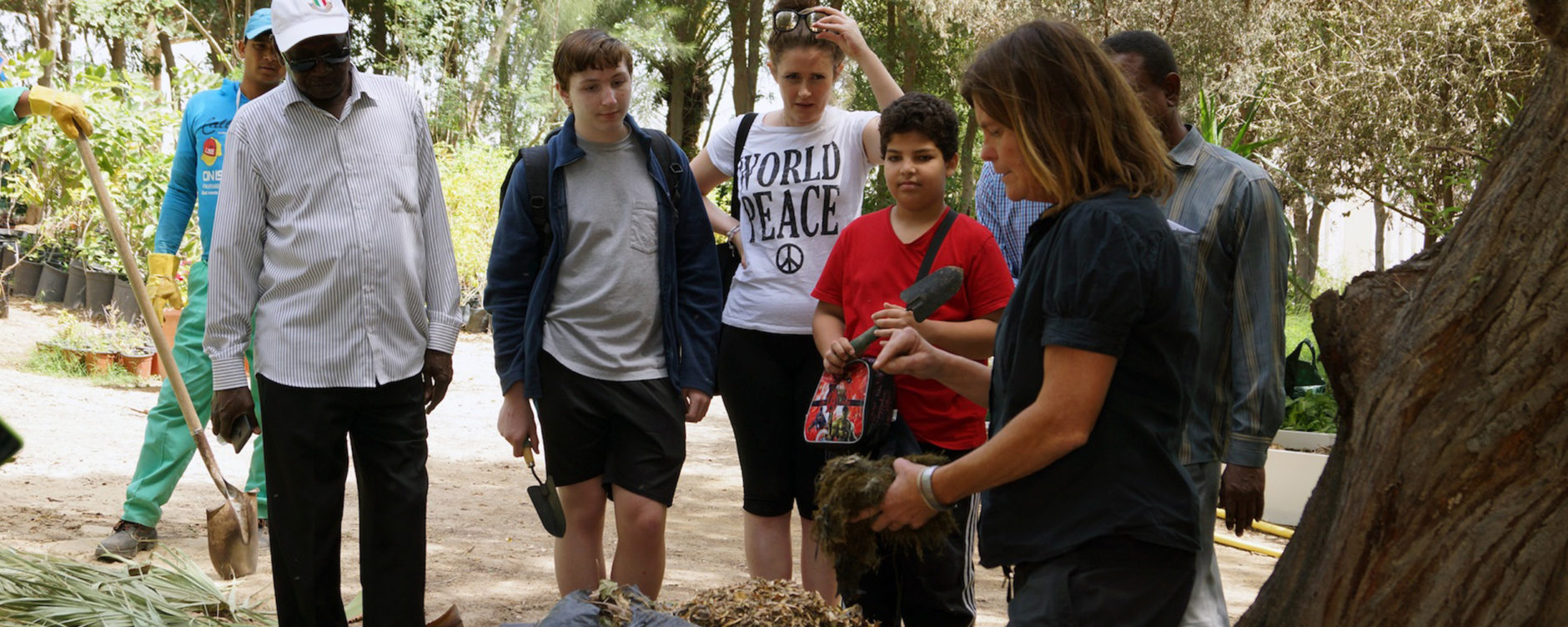
The edible permaculture garden at Qatar University is a significant emerging landscape project initiated by Department of Architecture faculty member Dr. Anna Grichting. Designed by her Undergraduate students, and supported by a grant from the Qatar Foundation, the garden project has benefitted greatly from the participation of Luzita Ball and Paige Tantillo, two certified permaculturists collaborating with the Department.
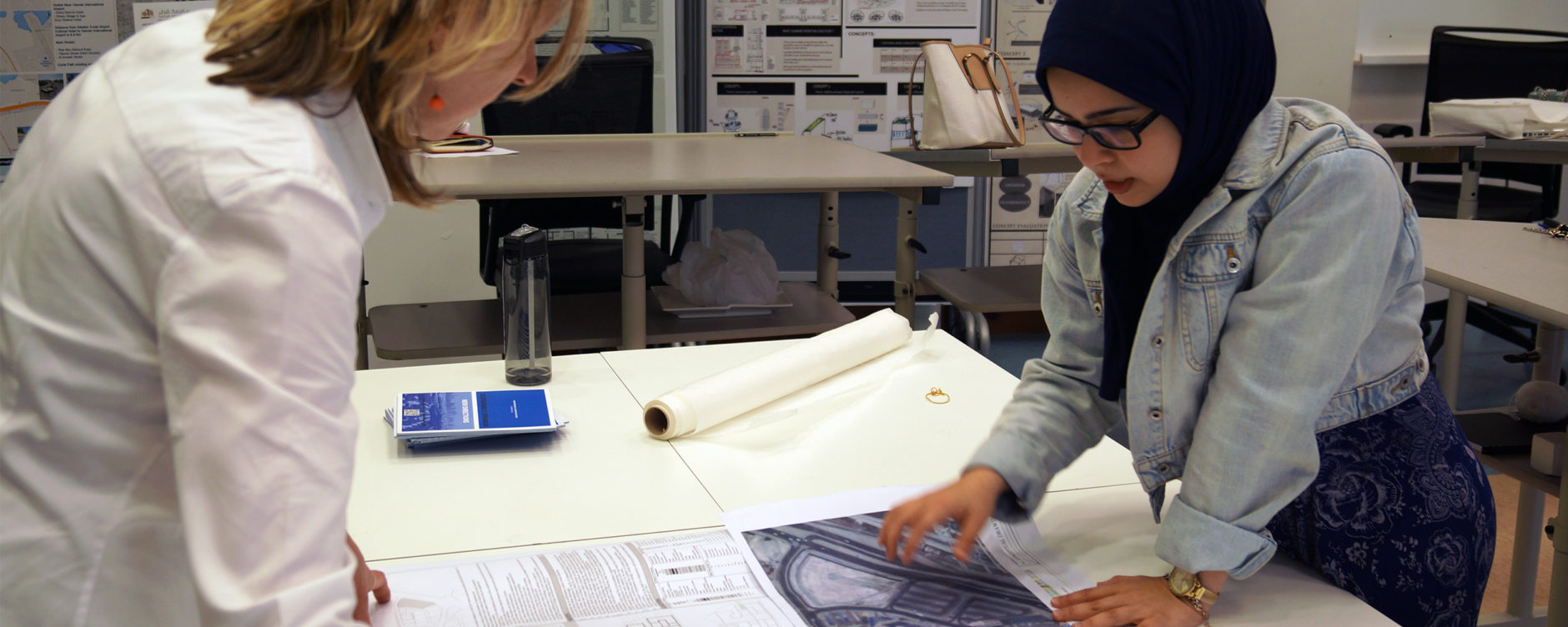
Landscape architect Johanna Gibbons, co-founder of J&L Gibbons, led a workshop on site design, supported by Al Nakheel Landscapes, at Qatar University’s Female College of Engineering on 24 March 2016 as part of her participation in the Sustainable Urbanism New Directions Workshop curated and staged by the University.
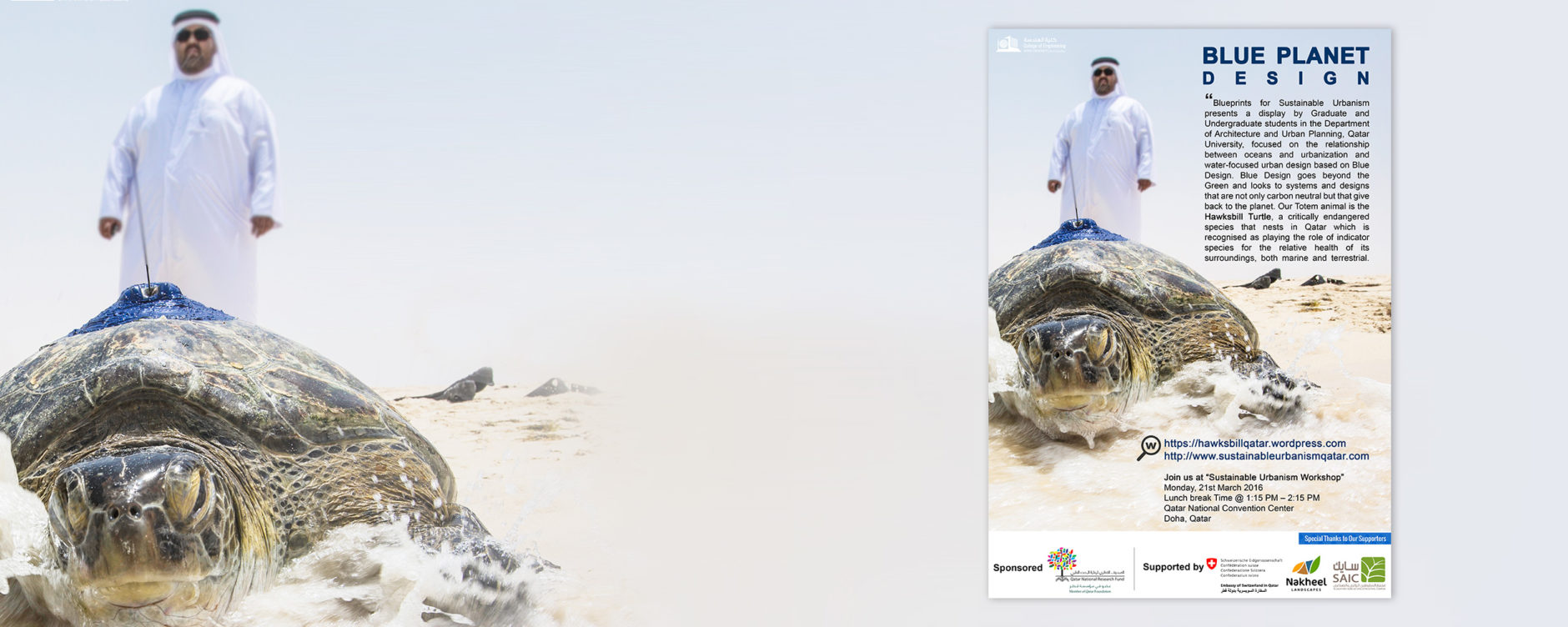
Blueprints for Sustainable Urbanism, a display by Graduate and Undergraduate students in the Department of Architecture and Urban Planning, Qatar University, focused on the relationship between oceans and urbanization and water-focused urban design adhering to Blue Design principles.
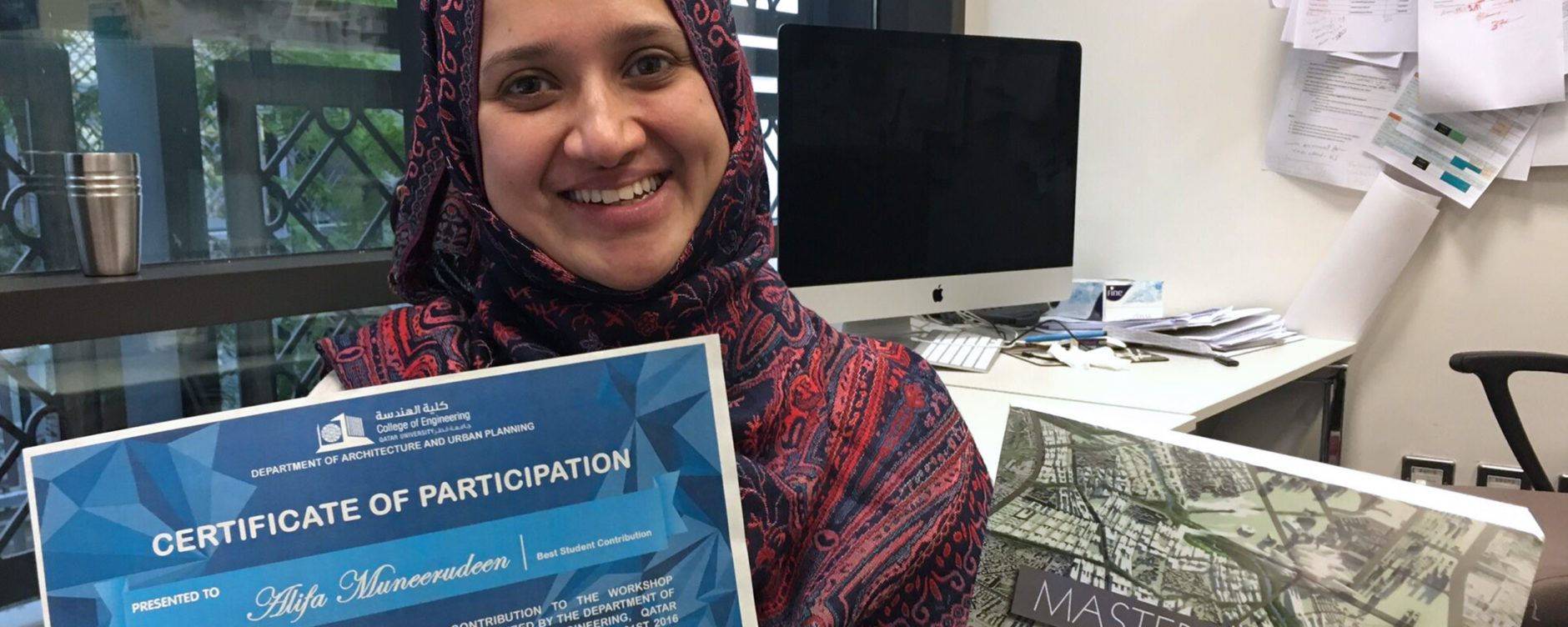
For such an international workshop on sustainable urbanism to be successful, it is essential that it actively involves students and young professionals and researchers. To recognise the outstanding commitment and contribution of our young participants, the Sustainable Urbanism Workshop organiser, Dr. Anna Grichting, presented outstanding volunteers and students with an Award Certificate and a gift.
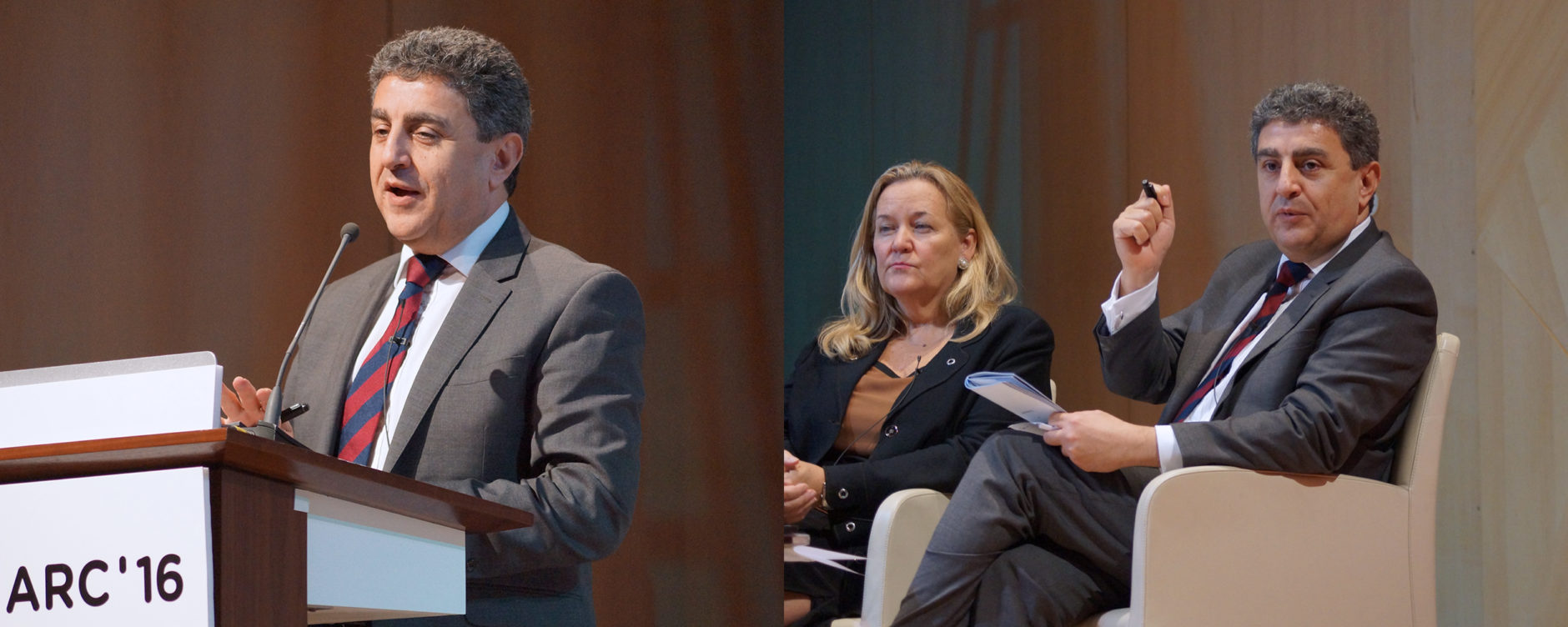
It is time to establish a regional reconstruction strategy for the Middle East, one that involves collective vision, broad participation, smart security, equality, and other key elements, argues Dr. Sultan Barakat, director of research at the Brookings Doha Center and a senior fellow in the Center for Middle East Policy at Brookings, one of the panellists speaking at the ARC16 (Annual Research Conference) session on Sustainable Urbanism, Qatar National Conference Center, 22 March 2016.
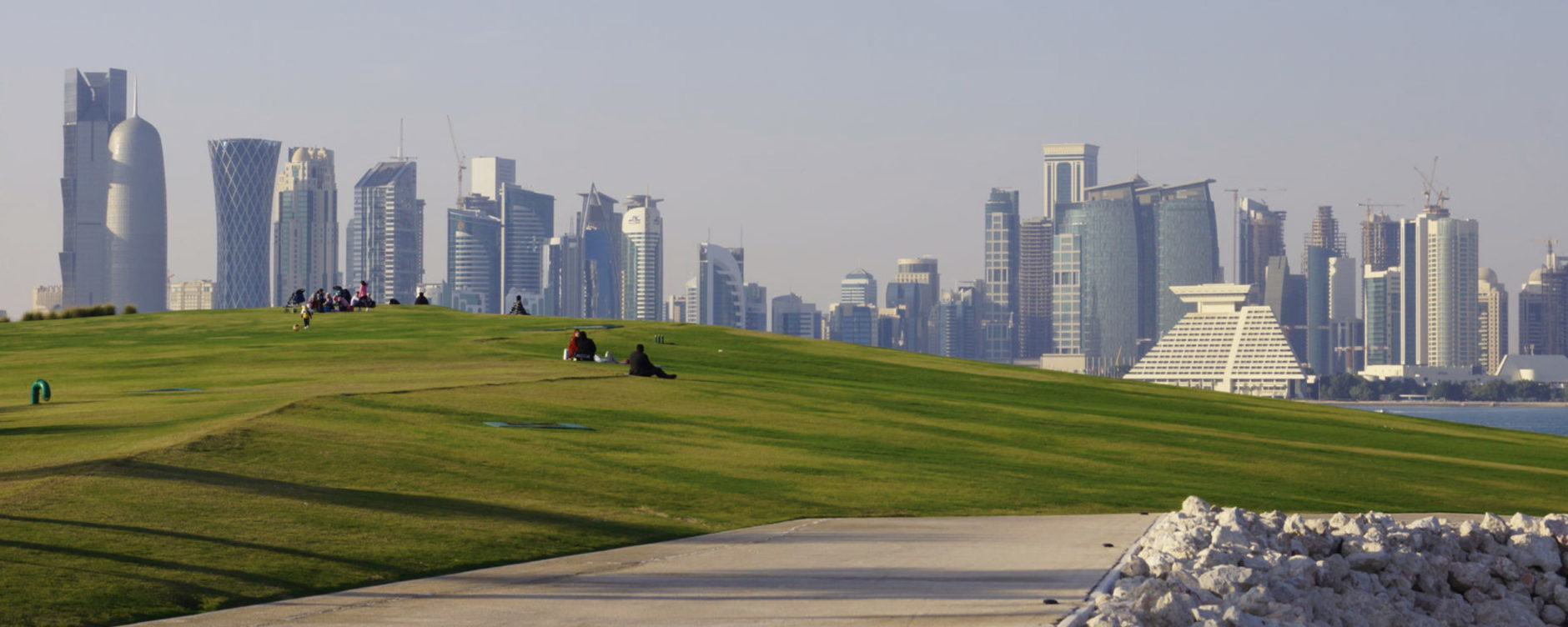
Dr. Anna Grichting outlines in detail the multifaceted research agenda arising from Qatar University’s Sustainable Urbanism – New Directions Workshop she curated and staged in March 2016.
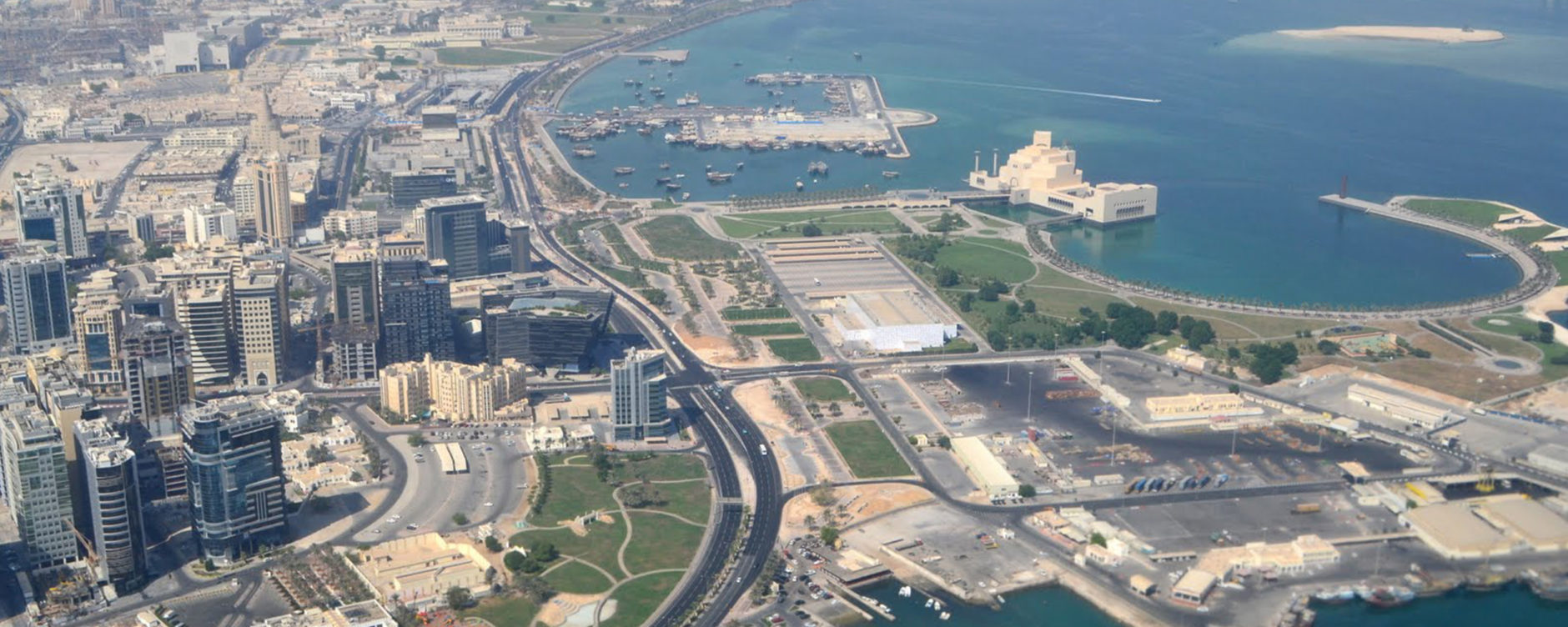
Key urban policy and strategy recommendations for development and planning managers emerged from the brainstorming session, moderated by Dr. Lucy Bullivant, held as part of the Sustainable Urbanism: New Directions workshop at Qatar University.
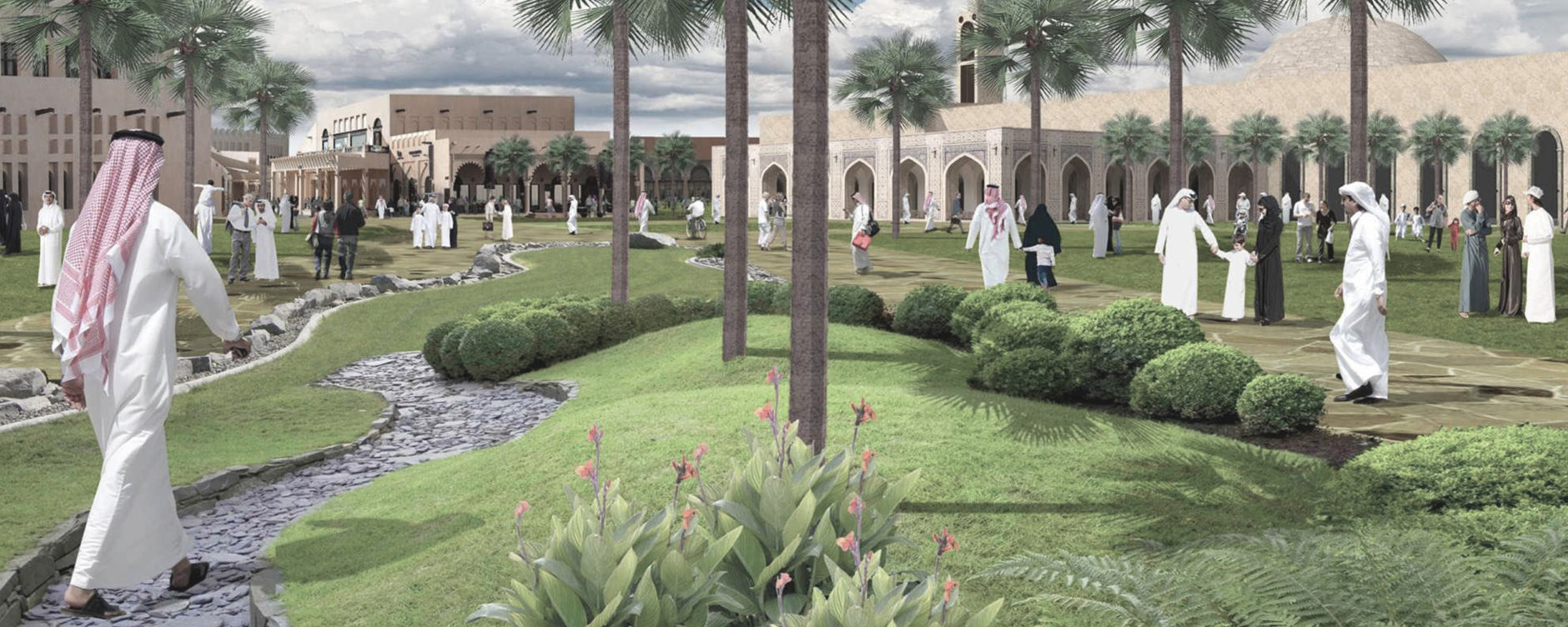
Dohasis is a vision for Doha’s Blue Biourbanism. Its tactical acupuncture projects are potentially implemented through interventions in available existing spaces, creating a restorative ecological ripple effect throughout the entire city.
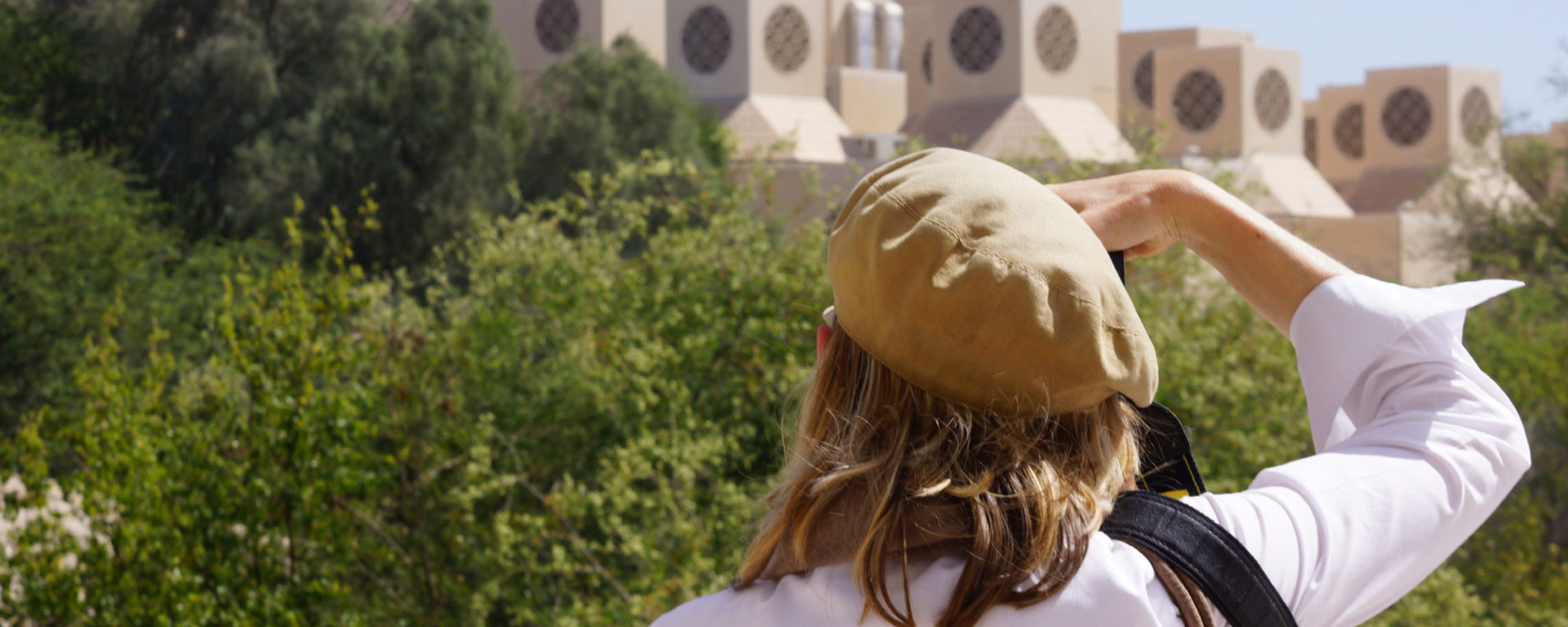
Landscape architect Johanna Gibbons’ participation in Sustainable Urbanism New Directions gave her the opportunity to reflect on the symbolic value of a single sierra tree surviving alone in Doha Bay for Doha’s future urban forest, to visit Suhaim Al Thani’s farm on the outskirts of Doha and share common interests in landscape and permaculture, and admire the self-sustaining approach to edible planting represented by Qatar University’s Edible Campus project initiated by faculty member Dr. Anna Grichting.
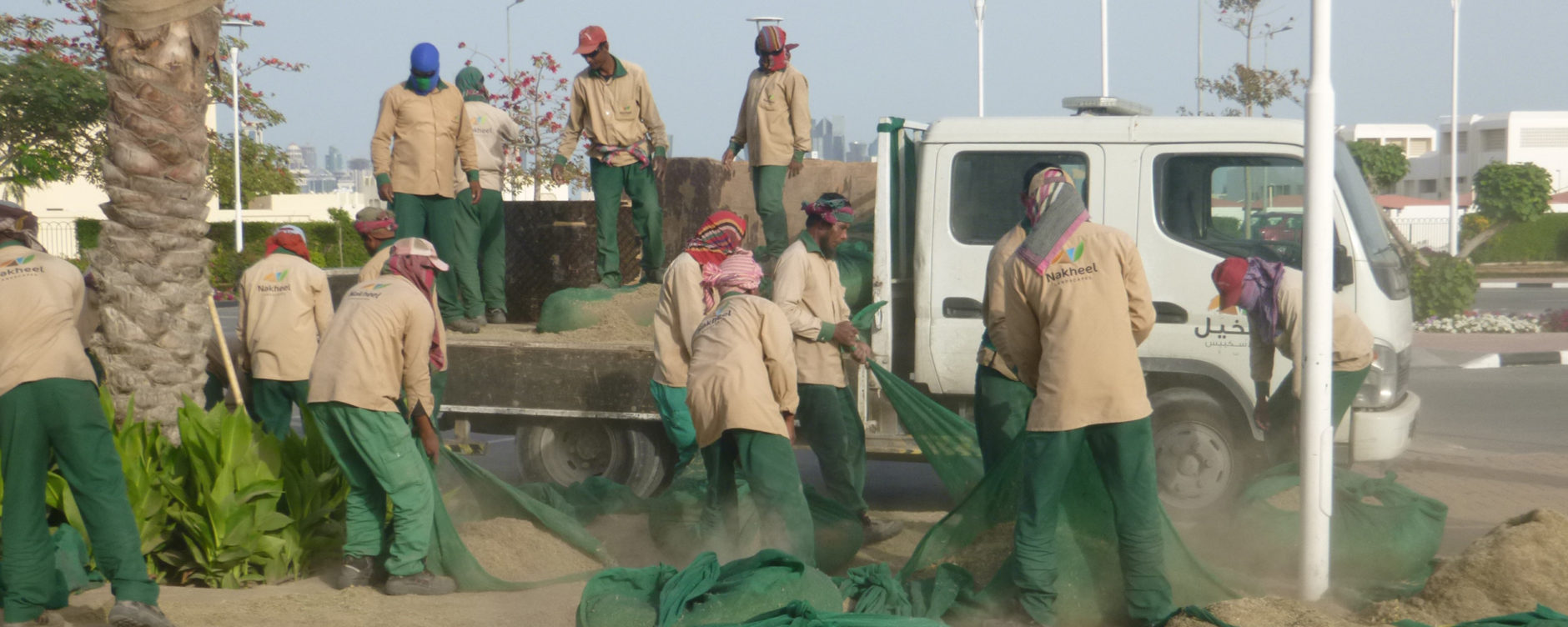
The dream map has been drawn for a sustainable Doha, believes ecologist Nance Klehm, who calls it a city that will develop its own unique culture of sustainability. However in order to better reach this dream Doha needs to identify itself as an organism, a vulnerable ecosystem and a habitat to humans.
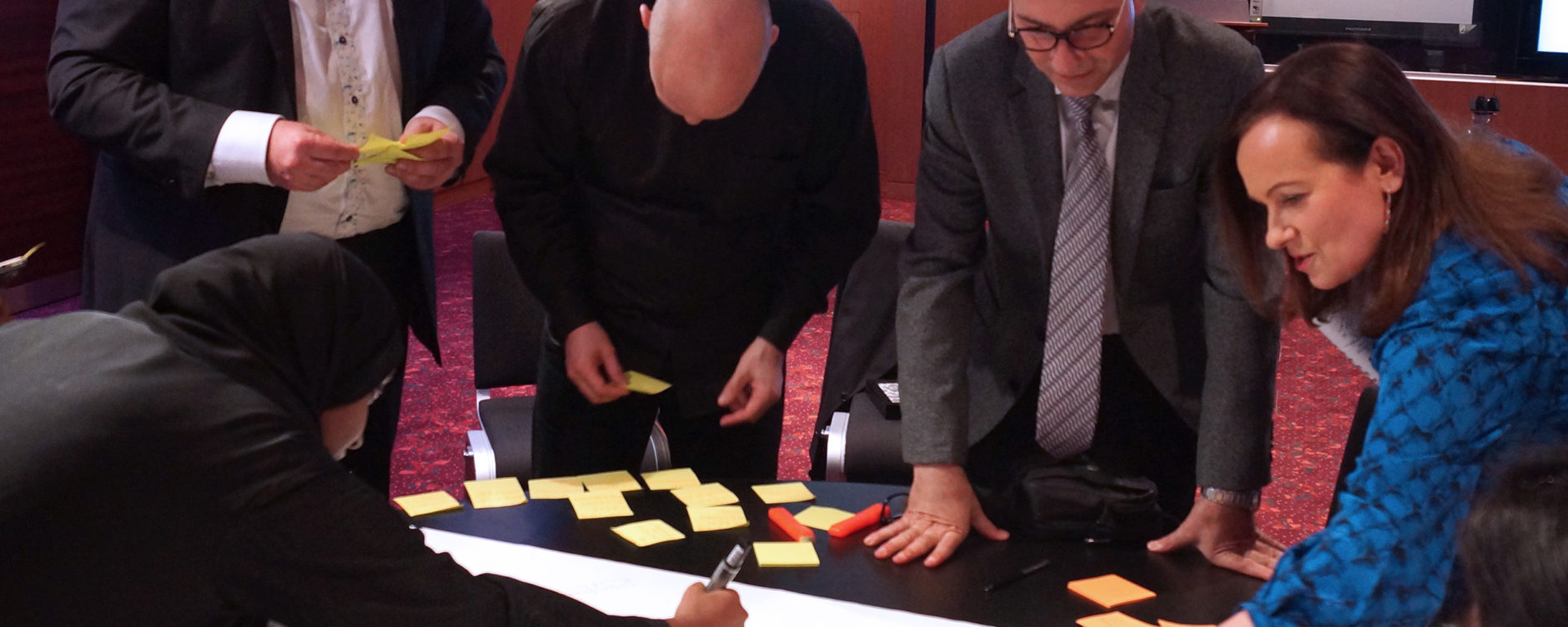
With more than 90% of Qatar’s population living in urban areas, achieving the Qatar National Vision 2030 necessarily requires a major focus on sustainable urban development, writes Dr. Patricia McCarney, President and CEO of the World Council on City Data (WCCD), reflecting on the Sustainable Urbanism – New Directions Workshop.
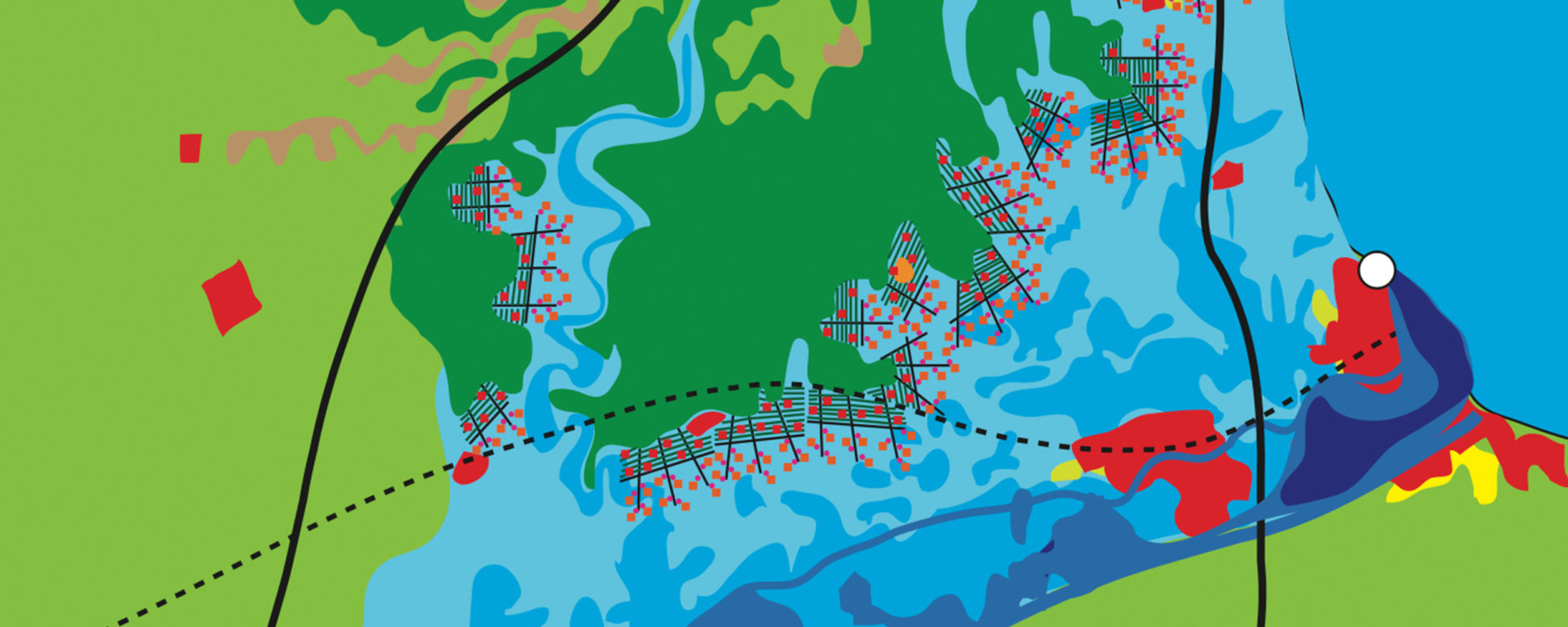
The Sustainable Urbanism Workshop at Qatar University highlighted the new era in urban development, writes speaker Dr. Rob Roggema, landscape architect, design expert on sustainable urbanism, climate adaptation, renewable energy landscapes and the design of urban agriculture, and founder of Cittaideale. Instead of thinking in icons and large building programmes, the emphasis was on how to redevelop the local and make use of the laws of nature in order to create a city that is able to change whenever this is required, for instance as result of climate change, economic downturn or population growth or decline.
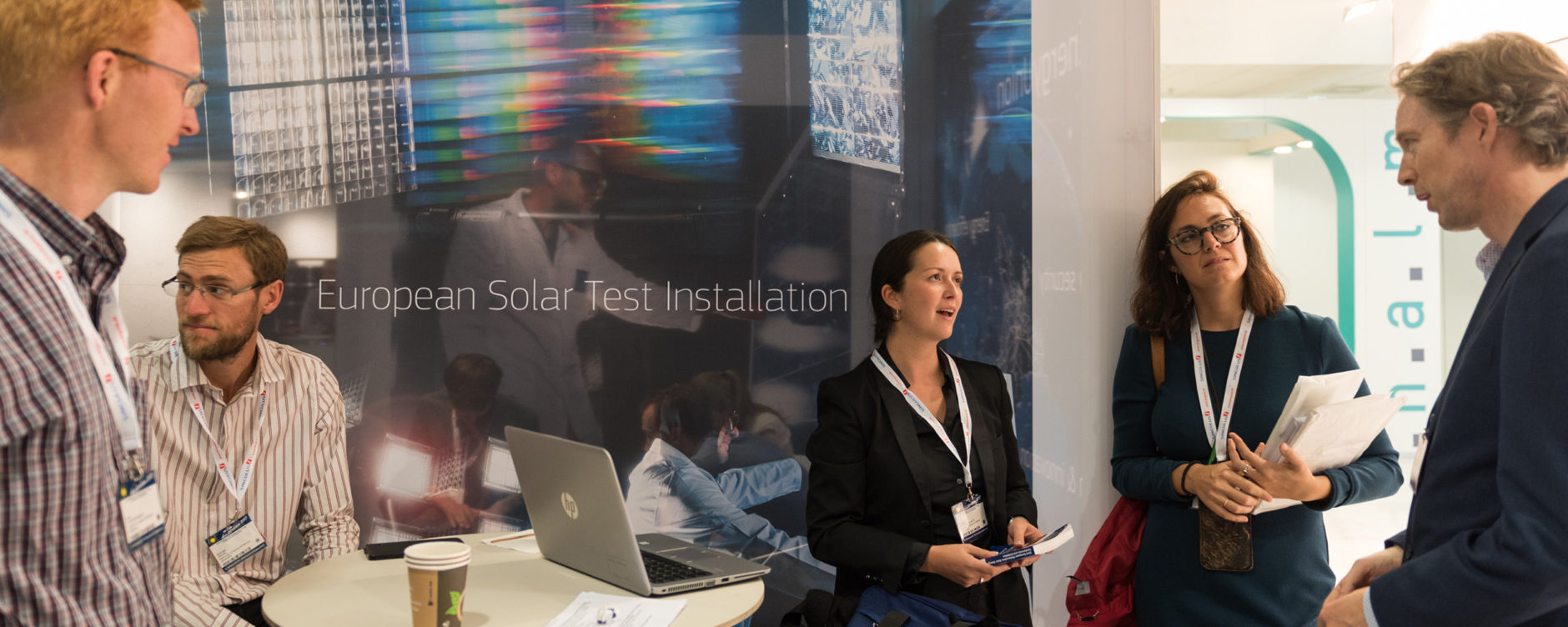
Cities are characterized by a large consumption of environmental and energy resources and social inequalities. A paradigm shift in relationships between energy, climate change and cities is vital, argues Dr. Patrizia Lombardi, to respond to the multiple challenges of climate change, ecosystem degradation, social equity and economic pressures.
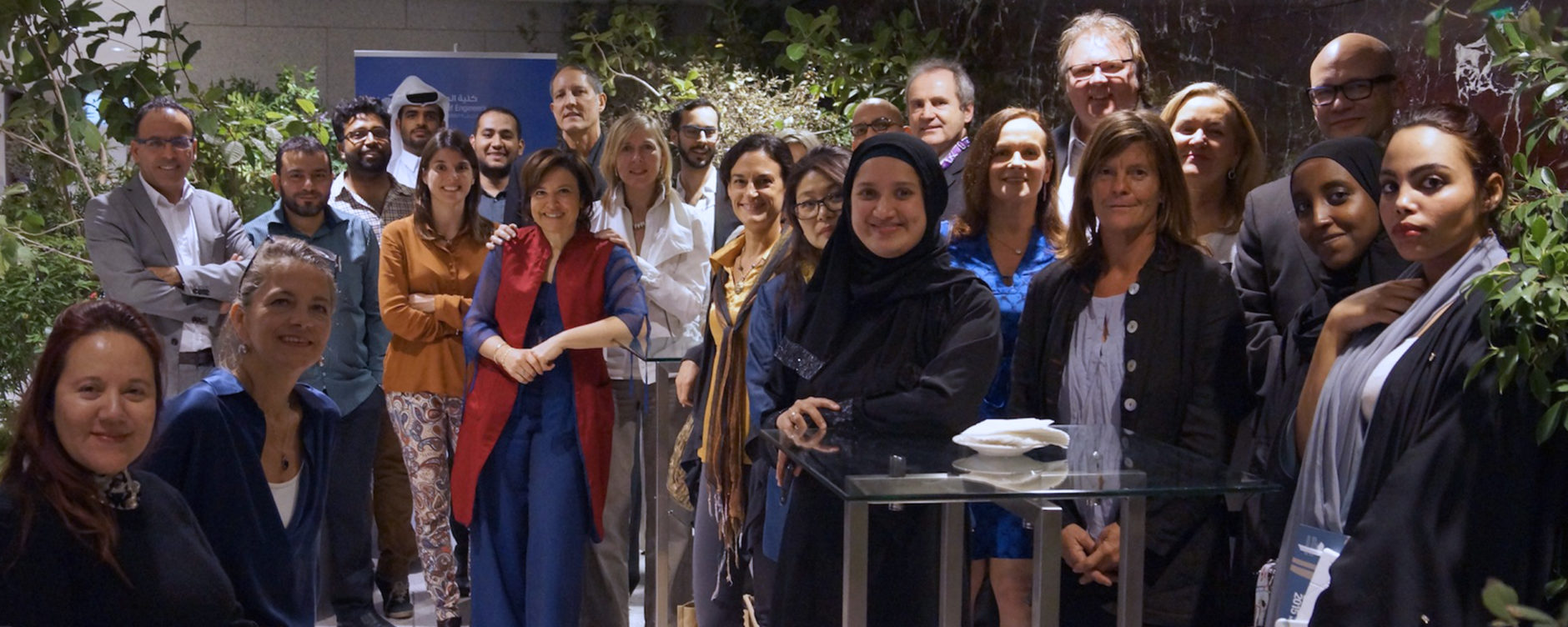
The organisation of Sustainable Urbanism – New Directions Workshop would not have been possible without the support and encouragement of many different parties.
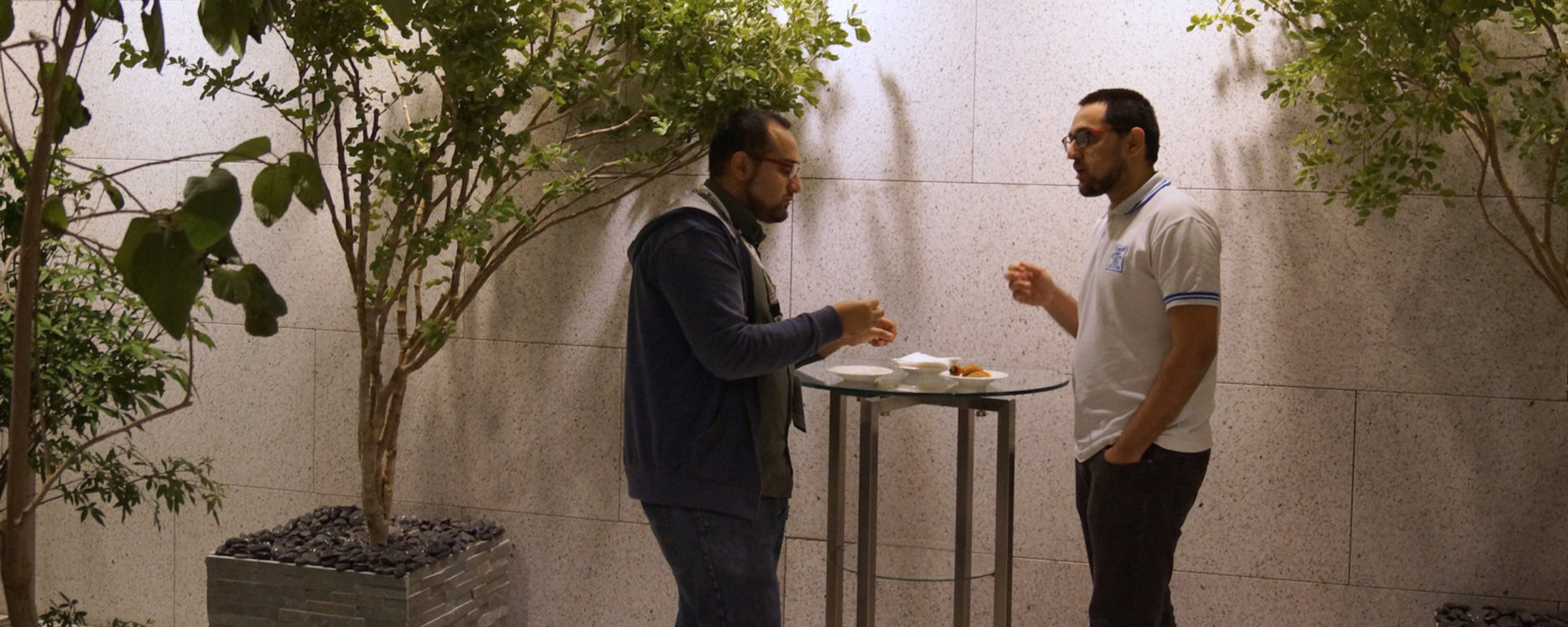
“Sustainable urbanism is not merely about smart cities, technology, urban design form and ecological infrastructure. It is also about people and communities and their participative role in shaping and managing the built environment. This was the simple premise that powered an enlightening workshop”, said the Gulf Times.
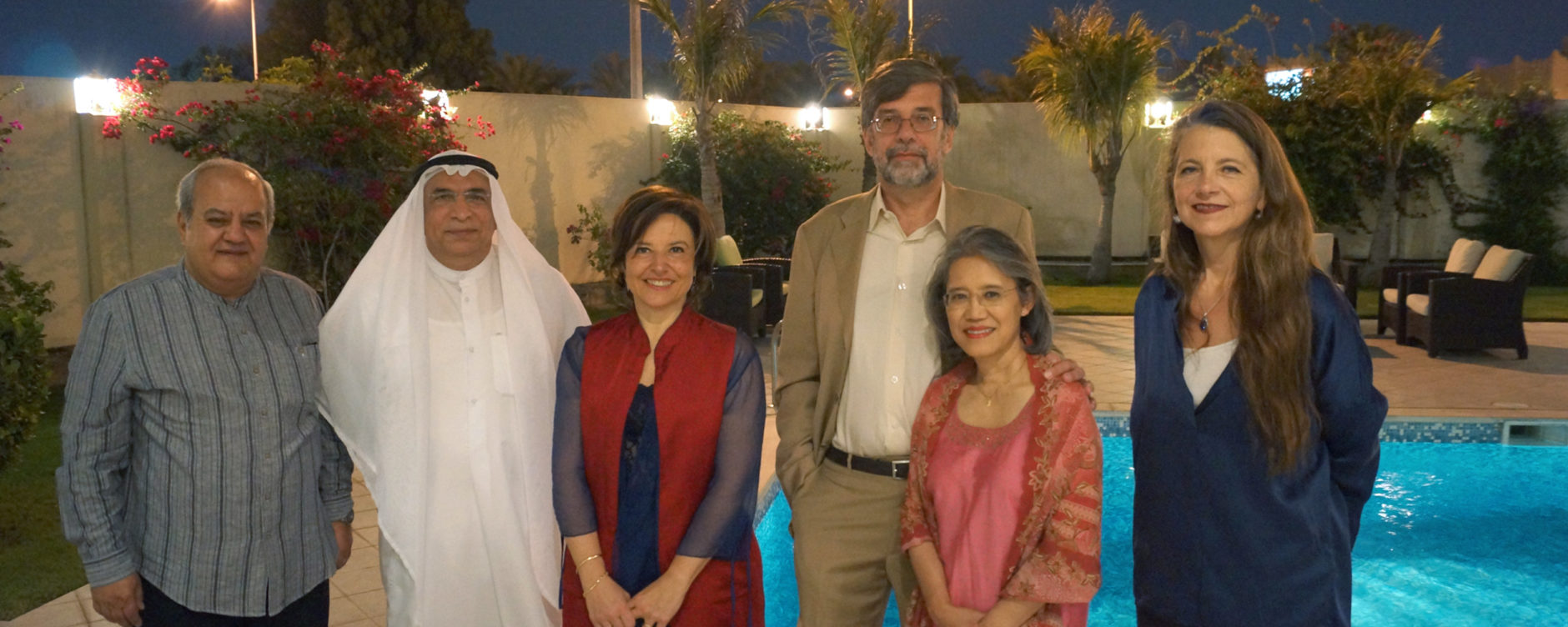
His Excellency, Etienne Thevoz, Ambassador to Switzerland in Qatar, hosted a networking reception at his residence for the sponsors, speakers and participants of the workshop on 21 March 2016.
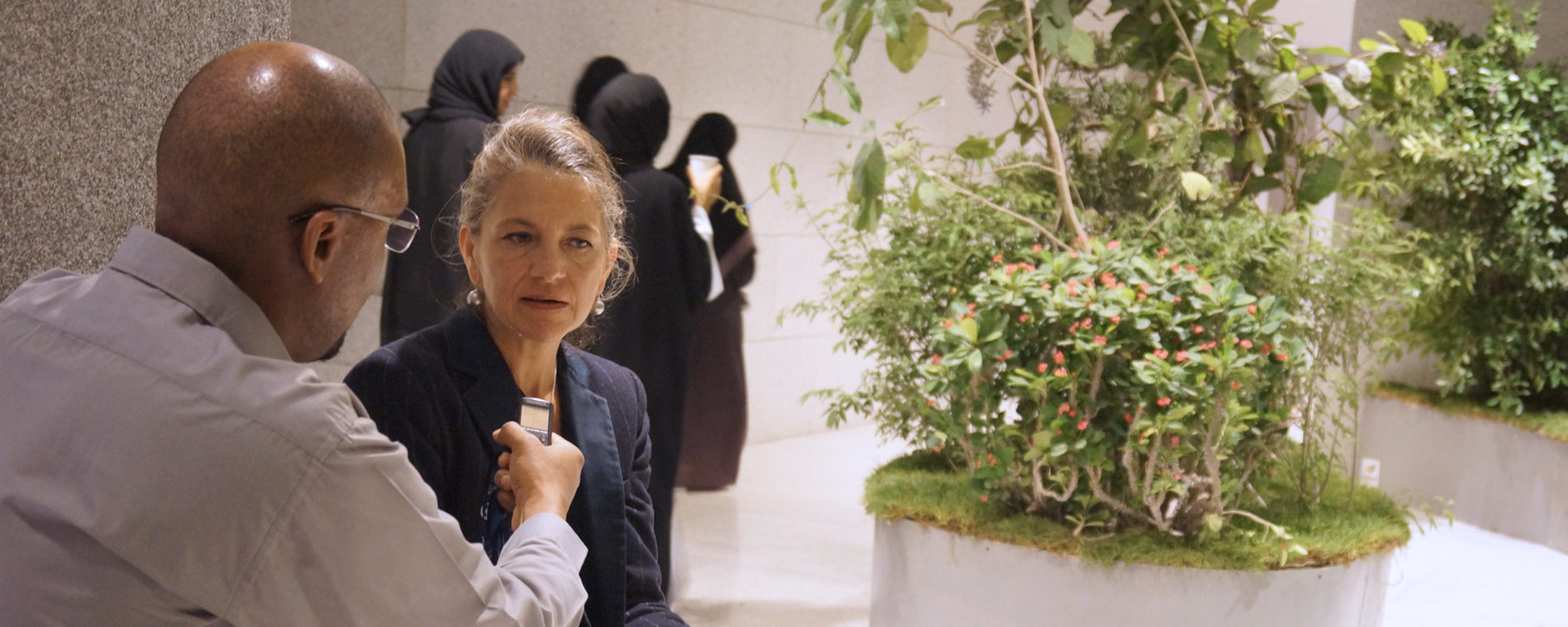
Nakheel Landscapes, the landscape contractor and a sponsor of the Sustainable Urbanism New Directions Workshop, constructed an Urban Forest at the Qatar National Convention Center workshop venue to highlight the importance of trees in creating sustainable and healthy urban landscapes.
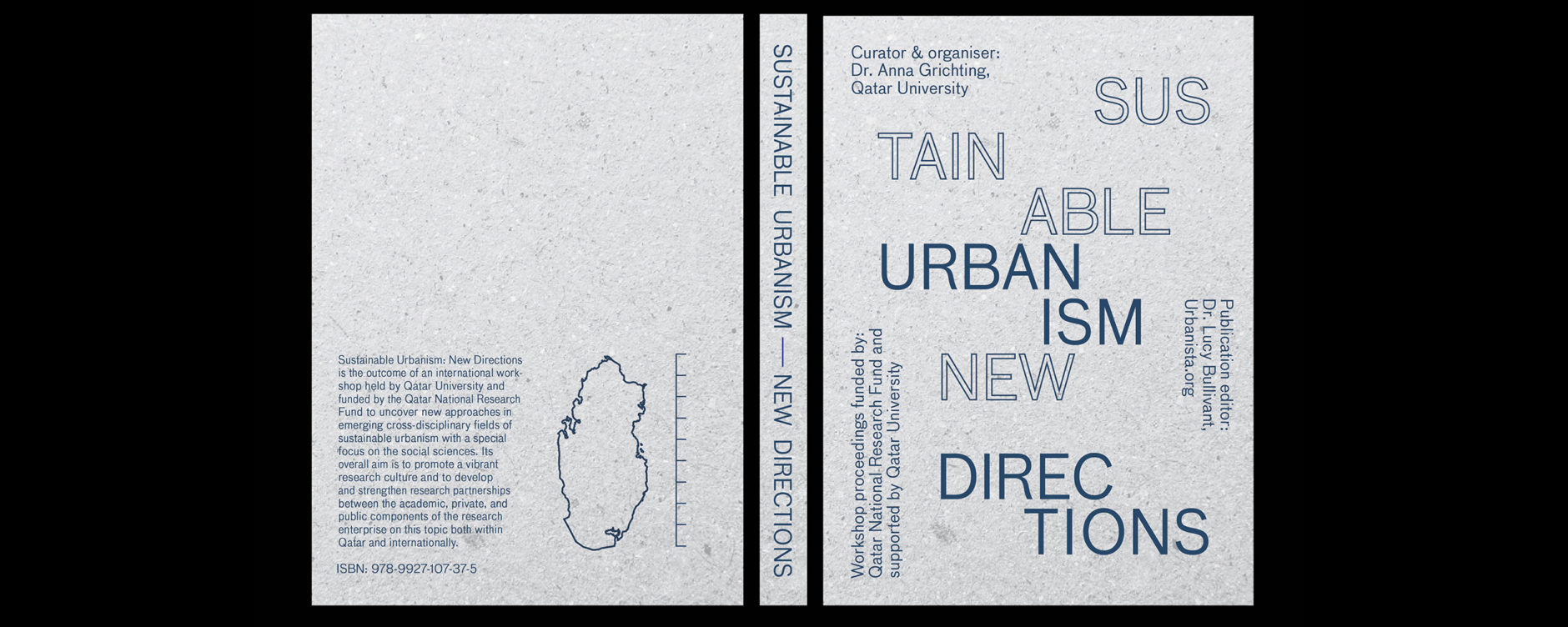
The Sustainable Urbanism – New Directions publication – launch date 4 April 2018 – has been produced simultaneously in a fully illustrated, 154 page printed limited edition designed by Kirstin Helgadóttir and as a special issue of Urbanista.org webzine for liveable urbanism designed by &&&.
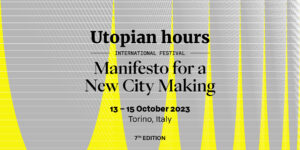
Utopian Hours: Manifesto for a New City Making, the first festival dedicated to innovative city making, is a rallying call for city planners, experts, makers, shapers, activists and developers to imagine new forms of city-making through conceptual innovation, showcasing some of the most inspiring ideas of recent years. This groundbreaking event launches for the 7th
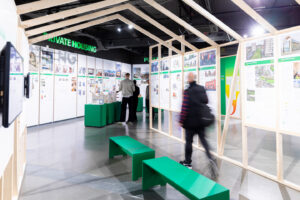
How can we achieve residential retrofitting at scale, because improving the performance of a home brings widespread economic, social, and environmental benefits. On display from 10 May – 20 October 2023, ‘Retrofit 23: Towards Deep Retrofit of Homes at Scale’, a new exhibition at the Building Centre, curated by Lucy Bullivant, explores these issues. The need
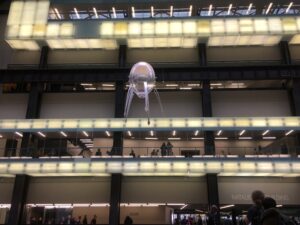
In Love with the World, Anicka Yi’s aerobes installation gracing the Turbine Hall at Tate Modern includes xenojellis and planulae, aquatic and terrestrial. These floating hybrid eco-tech machine species (mobile thanks to UAVs) develop individual and group behaviours over time, influenced by elements in the ecosystem. What if AI could learn through the senses rather
Groundbreaking educationalist Neil Pinder, in his talk for Temple Bar Trust (6 October 2021) argues for the need for architects and all built environment professionals to adapt their use of language to relate closely to the context of the audience. The power of words, phrases, the spoken word – summed up as language – is
Tara Gbolade is the latest architect to give a talk to Temple Bar Trust on 18 October 2021, chaired by Lucy Bullivant. She presented some of Gbolade Design Studio’s architecture and policy projects as case studies, highlighting how the practice responds to environmental, social and economic sustainability priorities, with the ultimate goal of designing kinder
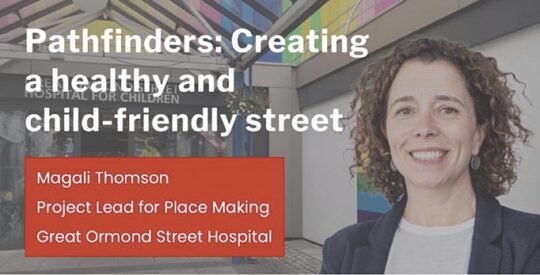
This year’s London Festival of Architecture 2021 adopts the highly topical theme of ‘care’, and exhorts us all to care more. Lucy has been curating Temple Bar Trust’s programme of online talks since June 2020 and our two events in the LFA programme (1-30.6) are: ‘Creating a healthy and child-friendly street for Great Ormond Street
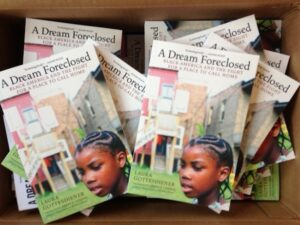
Wed 10 June 2020, Day 44 of the 100 Day Studio: Lucy Bullivant, founder of Urbanista.org, reads from ‘A Dream Foreclosed: Black America and the fight for a place to call home’ by Laura Gottesdiener, as part of Bedtime Stories, a nightly series of broadcasts on Instagram curated by Alicia Pivaro for The 100 Day
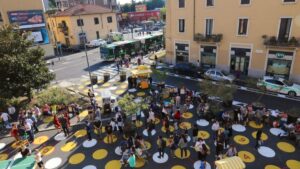
Together with Urban Vision, Urbanista.org has launched Urban Manifesto, a new webinar series creating a manifesto for a happier, healthier and liveable urban future as the world transitions from the COVID emergency into a new era. For our first episode we explored ‘Streets as Places of Mobility and Interaction’ with London-based architect Dinah Bornat and
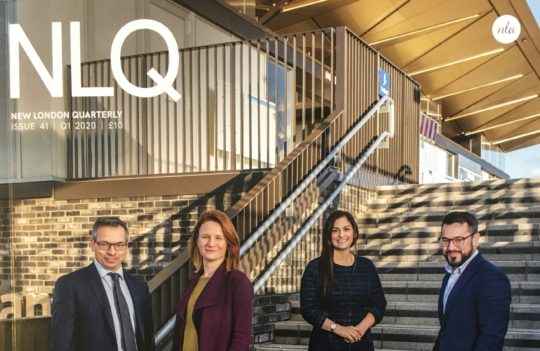
‘Making Meridian: Enfield faces its future’ is a new article by editor-in-chief of Urbanista.org Lucy Bullivant, featured on the cover of the 152 page winter issue of New London Quarterly, published with a redesign by Stefano Meroni. In it she explores Enfield Council’s creative leadership impacting its bespoke approach to Meridian Water. Along with
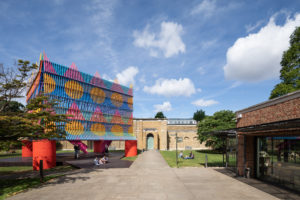
Every year the London Festival of Architecture takes a different theme to inspire its programme of public events, and in 2020 will examine power from multiple perspectives. The London Festival of Architecture opened its call for entries in October, inviting anyone with an interest in London and its built environment to respond with ideas for events